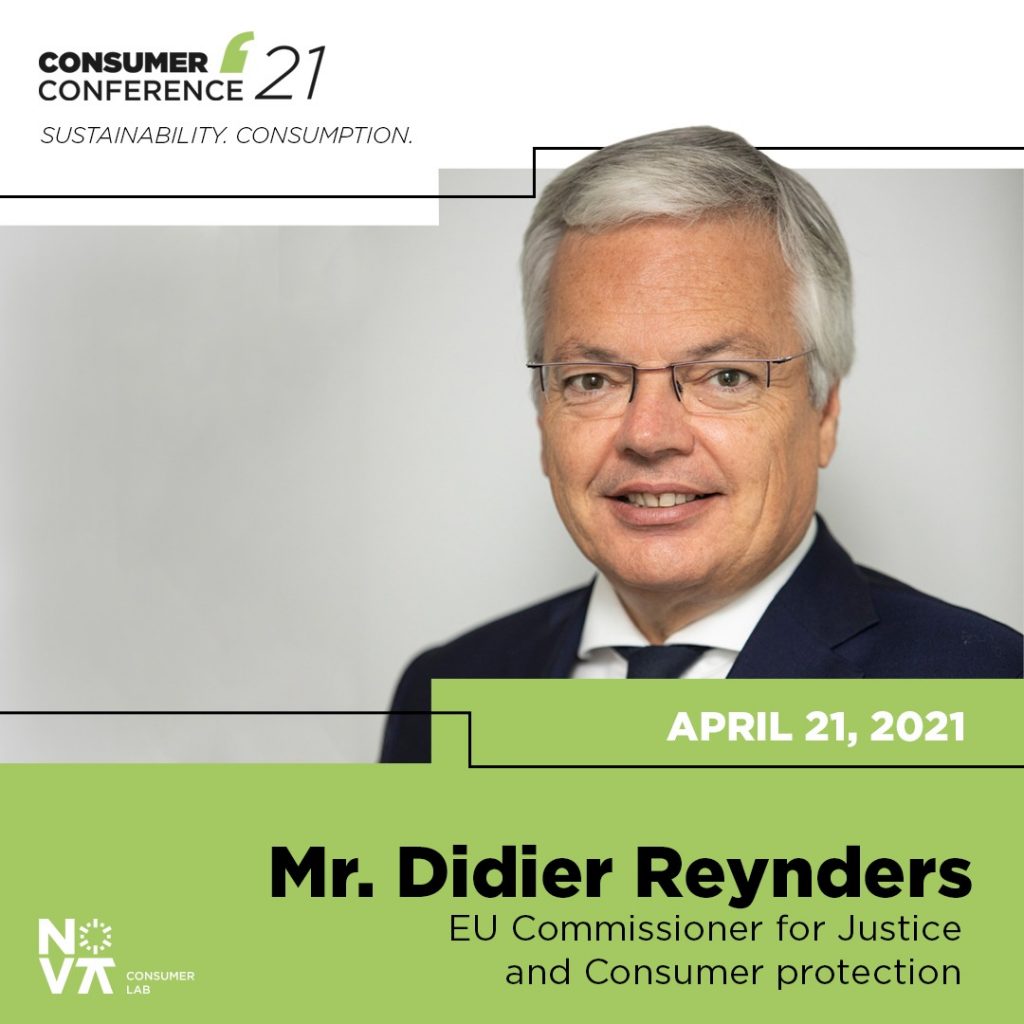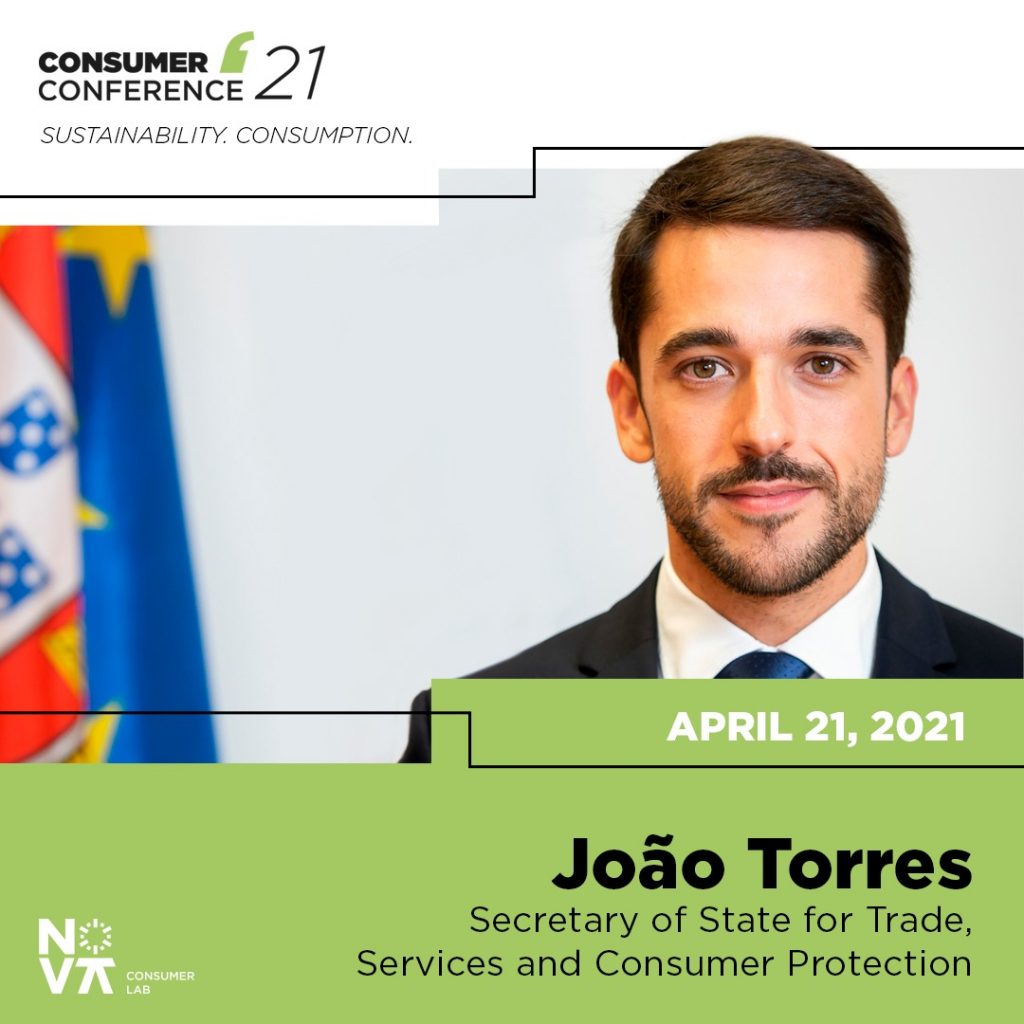Meet the speakers of the Consumer Conference 2021 and stay tuned for new confirmations.
OPENING
Sustainability: why and how?
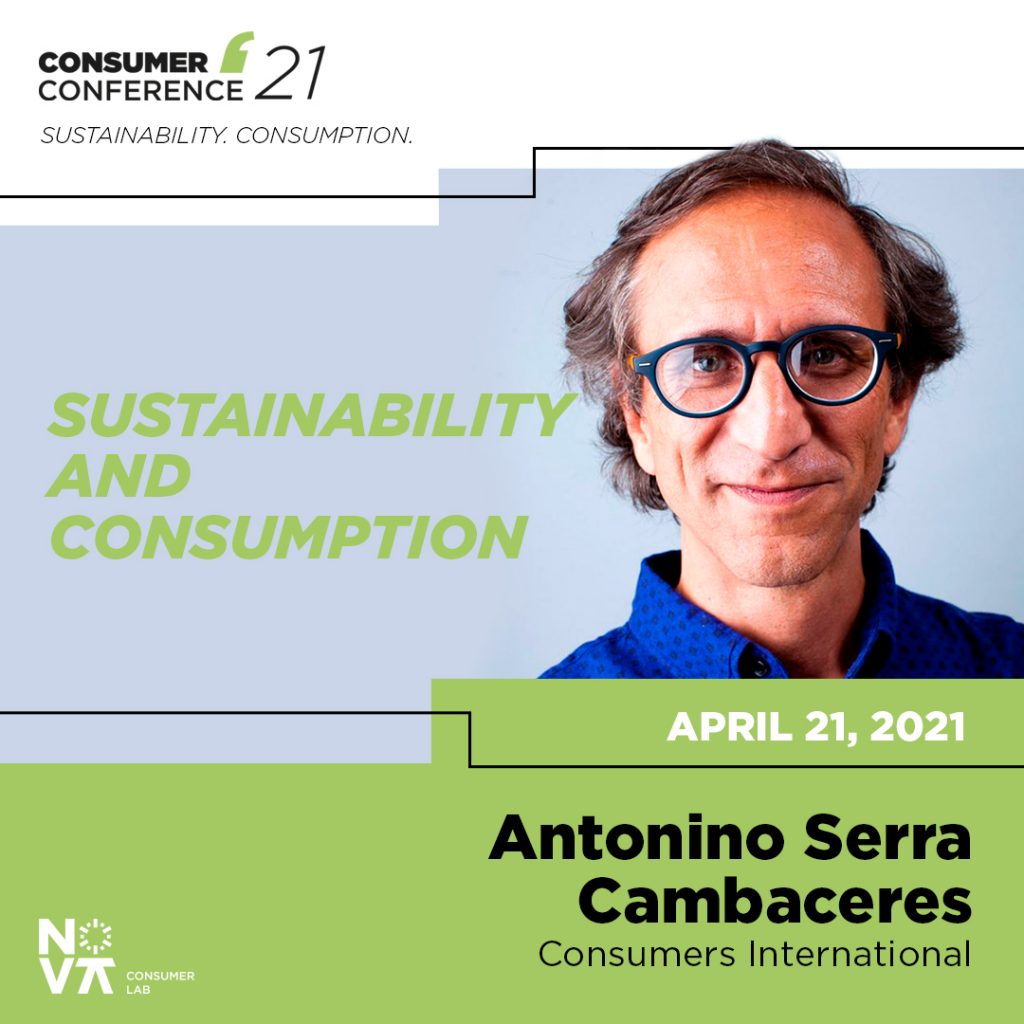
Antonino Serra-Cambaceres is a lawyer, with a law degree at the Universidad de Buenos Aires, Argentina. Since 1990 works in consumer protection and consumer law.
He was the co-ordinator of the legal team at ADELCO, Argentina’s Consumer Protection Association until 1997. He represented ADELCO in the drafting of Argentina’s Consumer Protection Law in 1992/3.
In 1997 he created the Consumer Arbitration Courts of Argentina within the Ministry of Economy, where he was also an arbiter.
In 1998 he joined Consumers International, as the legal co-ordinator at CI’s Latin America and Caribbean Office in Chile. Currently, he is Global Advocacy Manager. He was engaged in projects and programmes at CI that include law development, competition, access to knowledge, standards, CSR, e-commerce, product safety, among others. He was in charge of the Euro-Latin American Consumer Dialogue between 2000 and 2003. He led CI’s representation in the review and update of the UN Guidelines for Consumer Protection, approved in 2015.
He was one of the members of the team that drafted CI’s Latin American Model Law for Consumer Protection, guiding its revision in 2003. He was also the co-ordinator of the drafting committee of CI’s Familiar Insolvency Law for Latin America and the Caribbean.
He was professor at the postgraduate courses on consumer law and telecommunications law at the Faculty of Law of the Universidad de Buenos Aires, and gave classes in several universities such as University of Chile, University of Concepción (Chile), Catholic University of Sao Paulo (Brazil), University of Québec at Montréal, San Martín de Porres University (Perú).
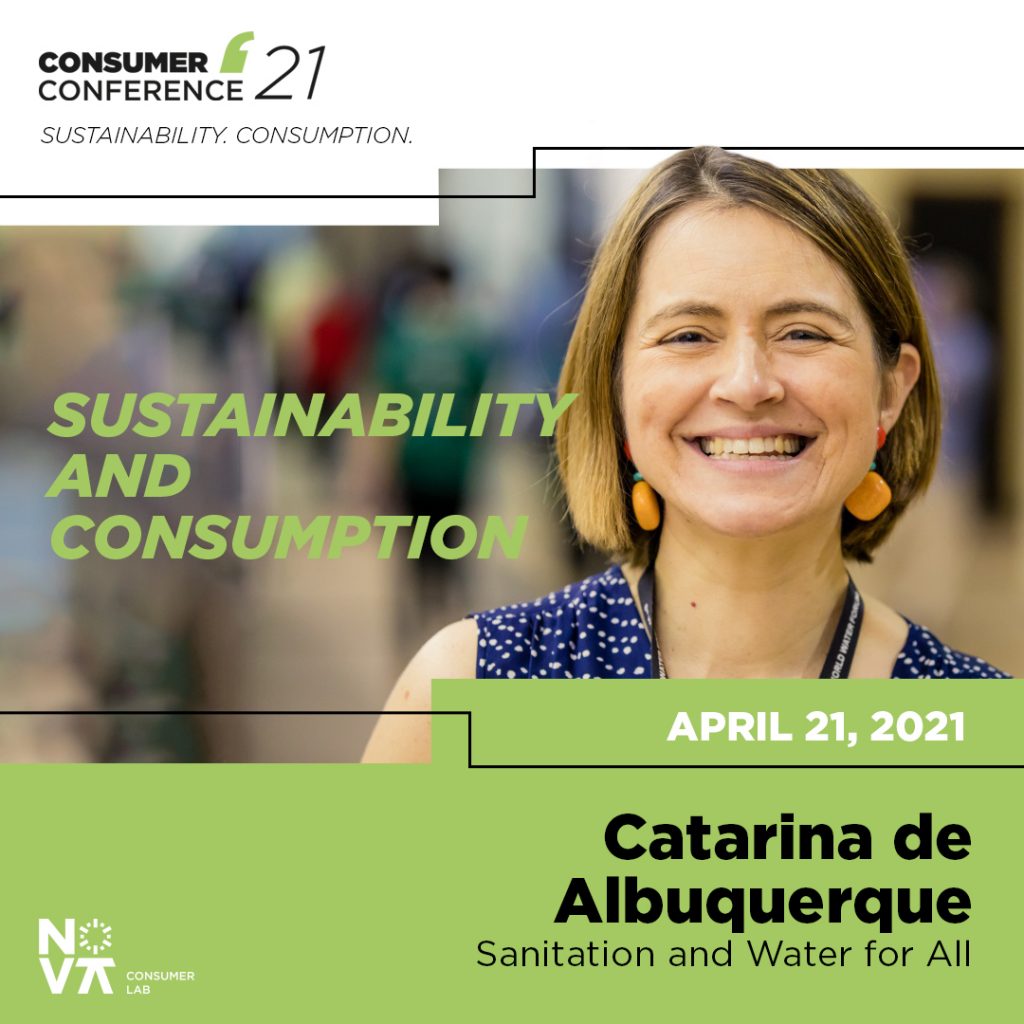
Ms. de Albuquerque joined SWA in 2014. Her priorities as CEO include providing strategic leadership to the partnership, as well as being an influential and powerful advocate for SWA and managing the Secretariat. In July 2018, following a wide-ranging governance review, SWA created the position of Chief Executive Officer and Ms de Albuquerque was chosen for the position after a competitive process.
Before joining SWA, Ms. de Albuquerque was the first UN Special Rapporteur on the human right to safe drinking water and sanitation.
Between 2004 and 2008 she presided over the negotiations of the Optional Protocol to the International Covenant on Economic, Social and Cultural Rights, which the UN General Assembly approved by consensus on 10 December 2008. She also participated in the development of a number of other international human rights standards, including the two Optional Protocols: one on the Convention on the Rights of the Child on the Involvement of Children in Armed Conflict, and the one on Sale of Children, Child Pornography and Child Prostitution.
Ms. de Albuquerque was an invited Professor at the law faculties of the Universities of Braga and Coimbra (Portugal), at the American University’s Washington College of Law, at the European Inter-University Centre for Human Rights and Democratization. She was also a Senior Legal Adviser at the Office for Documentation and Comparative Law, an independent institution under the Portuguese Prosecutor General’s Office. During her career she has also worked for the Swiss Development Agency, the European Commission, UNICEF, and UNDP, among others. She has country experience in Angola, Bangladesh, Brazil, Costa Rica, Egypt, Japan, Jordan, Kenya, Kiribati, Moldavia, Mozambique, Namibia, Nicaragua, Portugal, Romania, Senegal, Slovenia, Switzerland, Thailand, Timor-Leste, Tunisia, Tuvalu, Uruguay, and USA.
She was awarded the Human Rights Golden Medal by the Portuguese Parliament (10 December 2009) for outstanding work in the area of human rights. Her work in human rights was also honoured by the Portuguese President of the Republic with the Order of Merit (October 2009), which is a recognition of an individual’s personal bravery, achievement, or service. She holds an honorary degree from the University of Carolina at Chapel Hill.
She holds a Law Degree from the Law Faculty of the University of Lisbon (Portugal) and a Diplome d’Etudes Superieures from the Institut Universitaire de Hautes Etudes Internationales (Geneva, Switzerland).
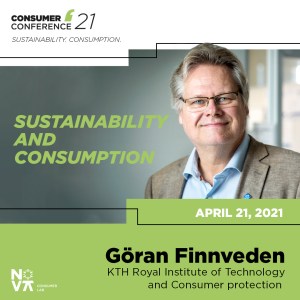
Göran Finnveden is Professor of Environmental Strategic Analysis at KTH Royal Institute of Technology. His main research interest is the use and development of life cycle assessment and other sustainability assessment tools. His contributions include both methodology development and case studies. He also works with environmental policy, futures studies for sustainable development and integration of sustainable development in higher education institutions. Application areas include buildings, consumption, energy, ICT, transportation, urban development and waste management.
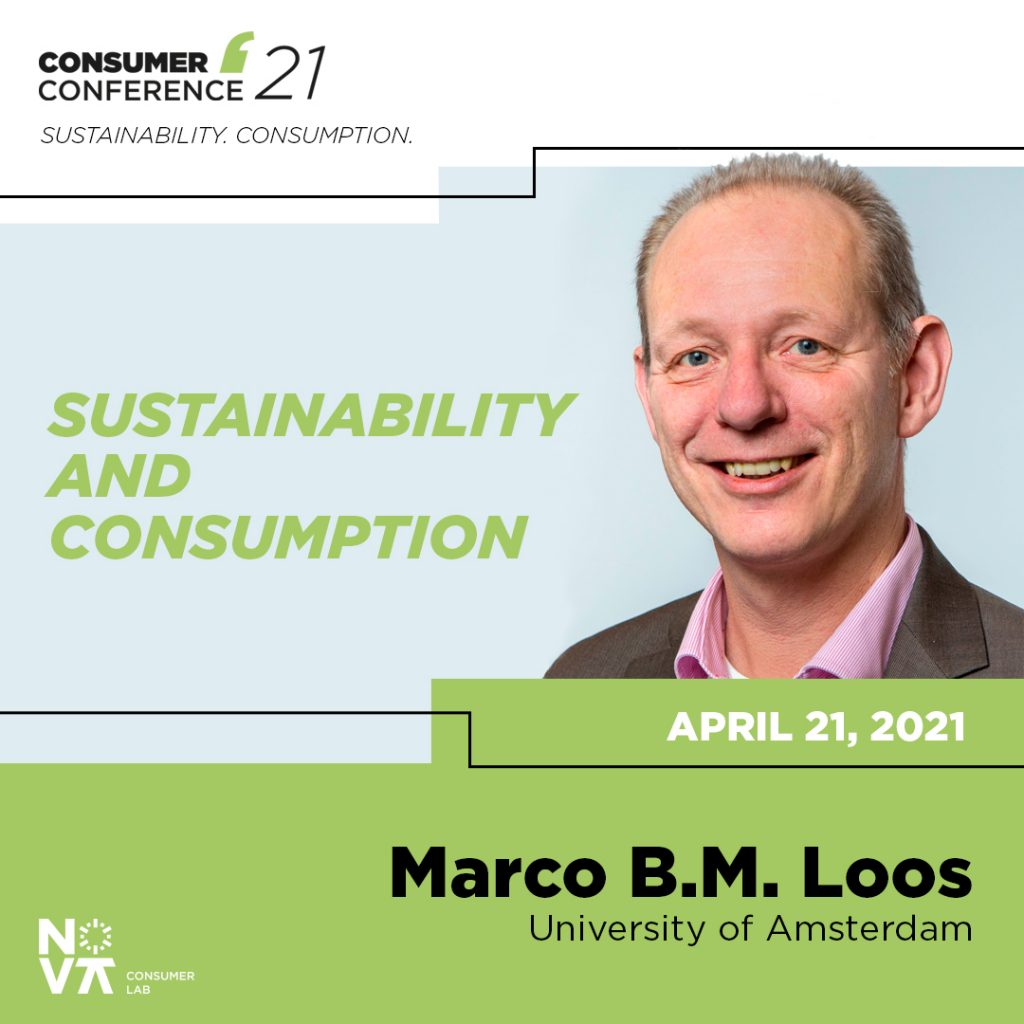
Marco Loos: Marco Loos studied law at the University of Amsterdam and wrote his Ph.D.-thesis on the contract to supply energy to consumers at Utrecht University. From 1997 to 2001 he worked as a researcher and lecturer of law at Tilburg University. From 2002 until now he works at the University of Amsterdam, first as a senior researcher and lecturer and as of 2005 as a full professor. He regularly publishes in the fields of contract law, consumer law and European private law.
Circular Economy
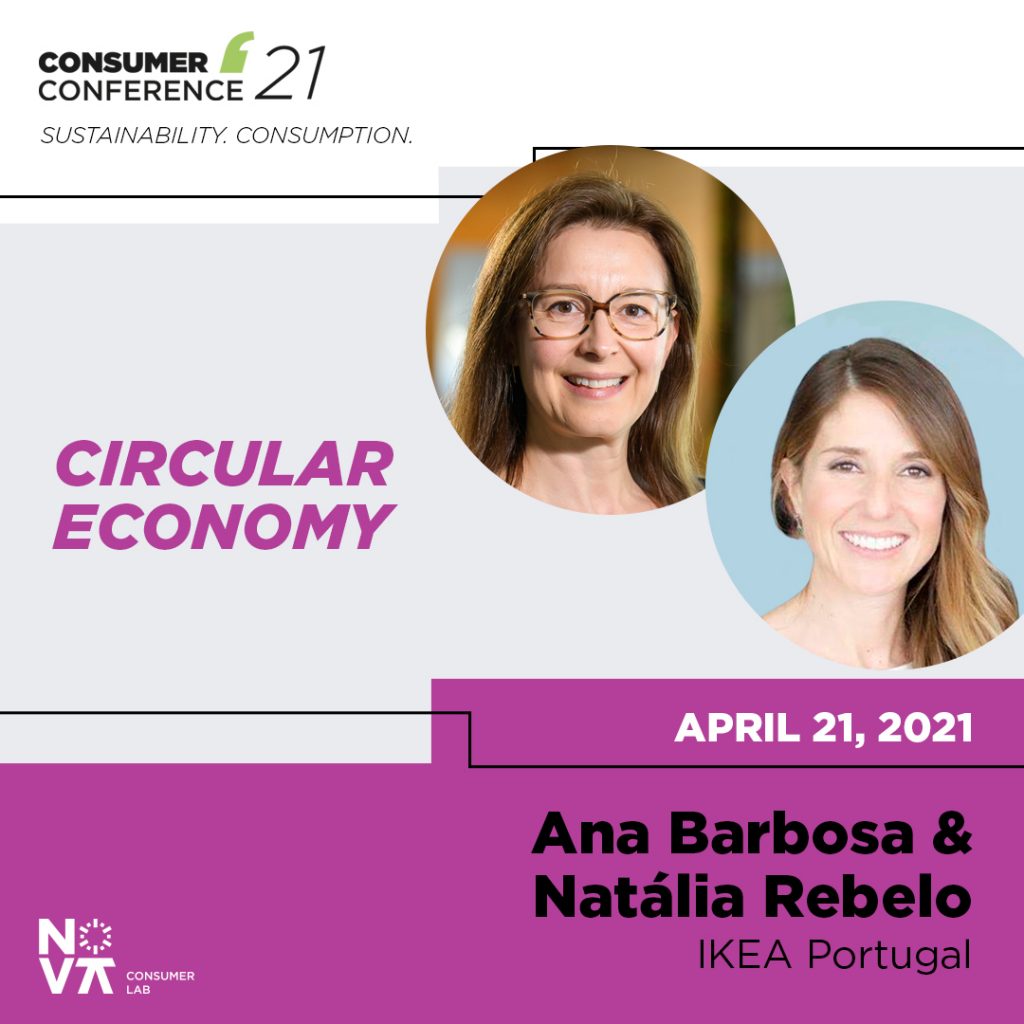
Sustainability Manager IKEA Portugal
After graduating in 1997 by Engineering Faculty of University of Porto, Ana worked in the wood furniture and textile garments areas in Portugal. Ana joined IKEA in October 2001, working on monitoring and developing IKEA suppliers in the areas of product quality and sustainability. Ana worked in different IKEA markets – Portugal, Southeast Asia and Central Europe.
Since 2010 Ana joined the retail organisation, in the Sales team at IKEA Portugal, contributing to business development and local range offer in order to be more relevant and support a better everyday life for the many Portuguese, namely in the business areas of bedrooms and children range.
Since 2017 is the responsible for the sustainability area in IKEA Portugal, contributing to continuous improvements of the environmental impact of IKEA Portugal operations, increasing engagement and support to different community groups and inspiring and enabling Portuguese consumers to live a better everyday live within the limits of the planet.
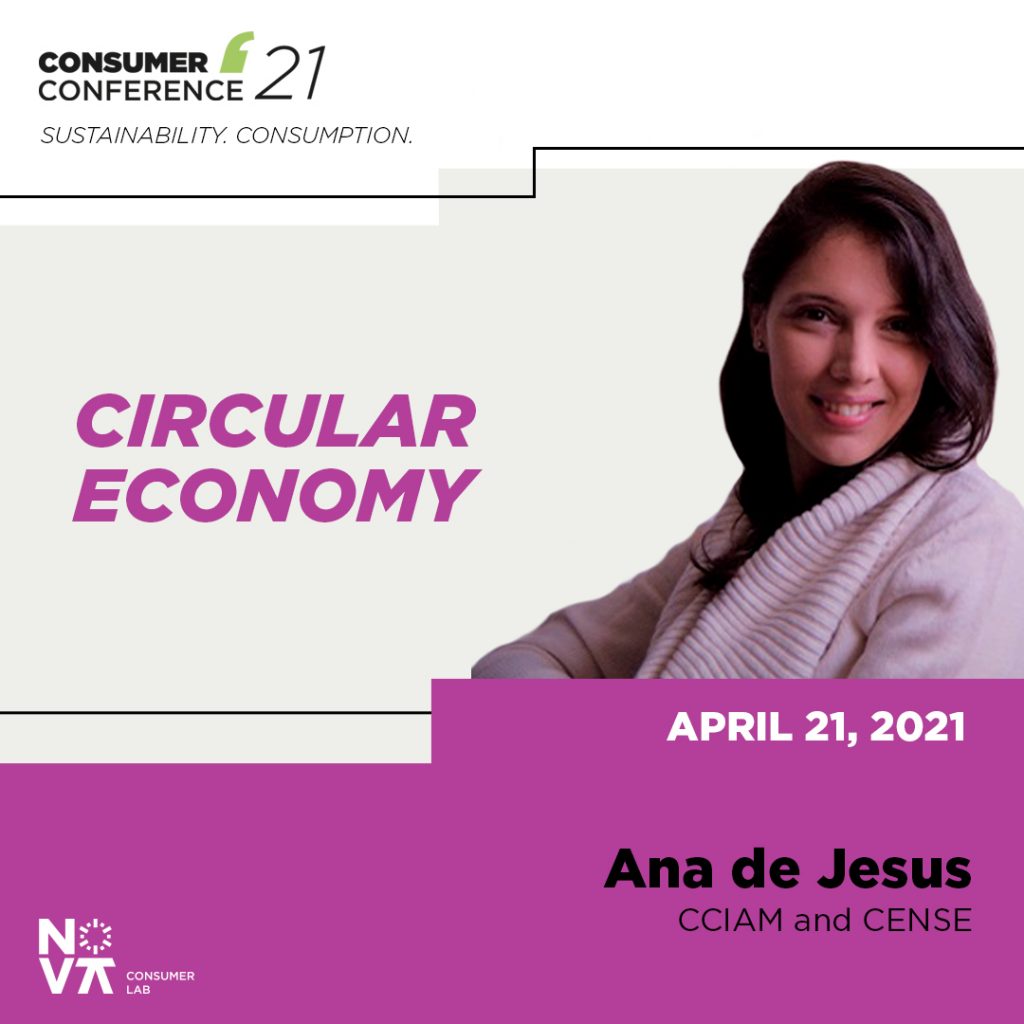
Ana de Jesus is a Portuguese researcher, living in Stockholm, with a multidisciplinary academic background, encompassing several areas from globalisation studies, to economics and climate change adaptation, but with innovation and sustainability as a guideline and core of her main research interests.
She holds a MSc in Economics and International Integration from ISCTE-IUL Business School and a PHD on Global Studies ( NOVA University Lisbon), focusing on the role of innovation in fostering a socio-techno-economic change towards more sustainable models, namely within the “Circular Economy” approach.
In the last few years she has been involved in projects like the United Nations’ “Global Sustainable Development Report 2015”; the development of an online business knowledge sharing platform, focused on “circularity” – Eco.nomia (in 2016 promoted by the Portuguese Ministry of the Environment) and the European funded Horizon 2020 project PLACARD. She has also been actively engaged in science communication having helped to organise several international conferences, webinars and events among which the “4th European Climate Change Adaptation conference” (https://www.ecca2019.eu/) stands out. She is now Guest Editor of the Special Issue on “Circular economy and eco-innovation: Stocktaking and looking ahead” on the Sustainability Journal (ISSN 2071-1050).
Her personal research interests focus on innovation, sustainability, climate change, circular economy, sustainable consumption and production, as well as co-creation
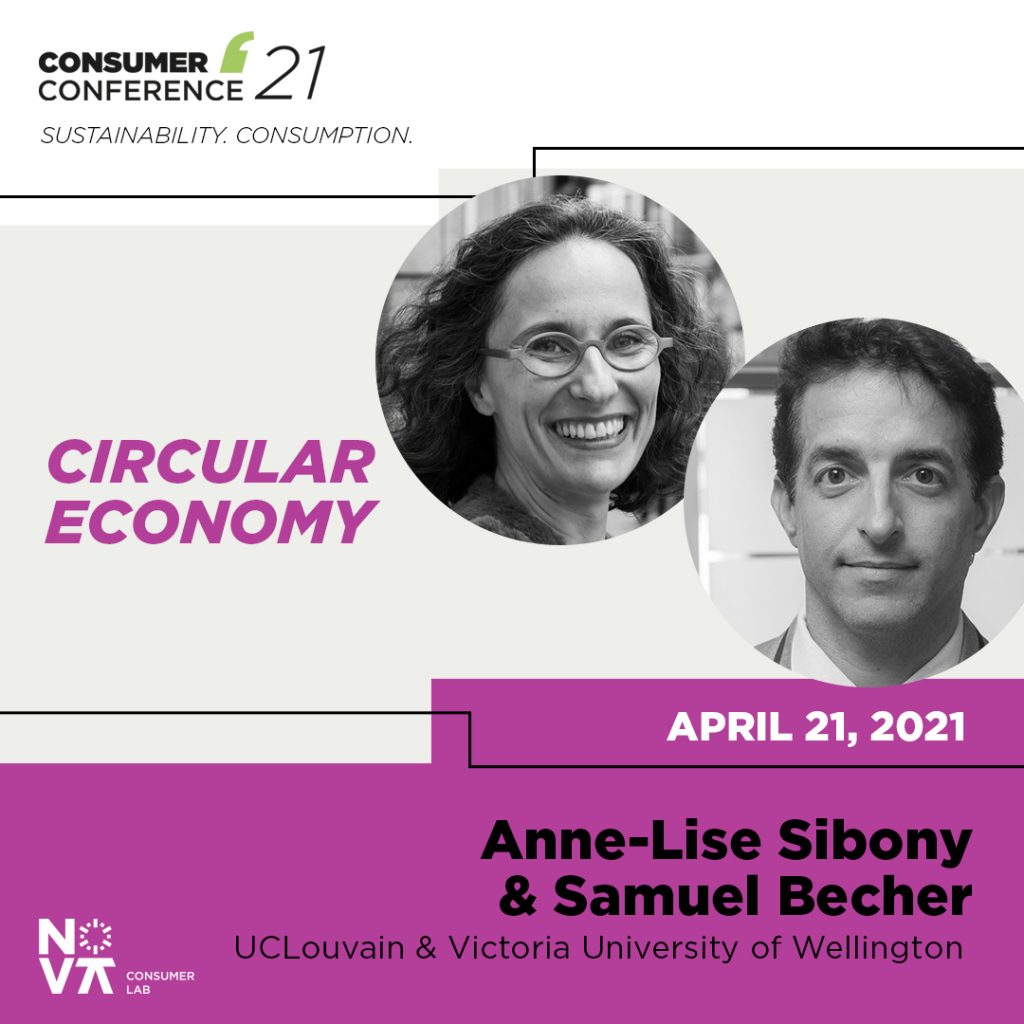
Anne-Lise Sibony is professor of European Law at the UCLouvain (Louvain-La-Neuve, Belgium). Her research focuses on behaviourally-informed law making at EU level, with an emphasis on consumer protection.
Anne-Lise read law and economics in Paris, graduated from the École Normale Supérieure (Paris) and holds an MsC in Regulation from the London School of Economics. Ever since her PhD on how courts use economic reasoning in competition law, her main research interest lies in how scientific knowledge (economics, psychology) is used in the legal sphere.
Anne-Lise is a guest professor at KULeuven, where she teaches Law & Behavioural Sciences.
Professor Becher has earned his LL.M. and J.S.D. from Yale Law School, and his LL.B. from Tel Aviv University. His interdisciplinary research spans law and economics, law and psychology, law and happiness, and empirical analysis of law. His work has been widely published in the United States, Israel, Australia, New Zealand, Mexico, and Europe. Among other things, Professor Becher remains curious as to the ways consumer law and environmental law and can work in tandem to advance human flourishing, minimize environmental and social harm, and promote sustainable consumption.
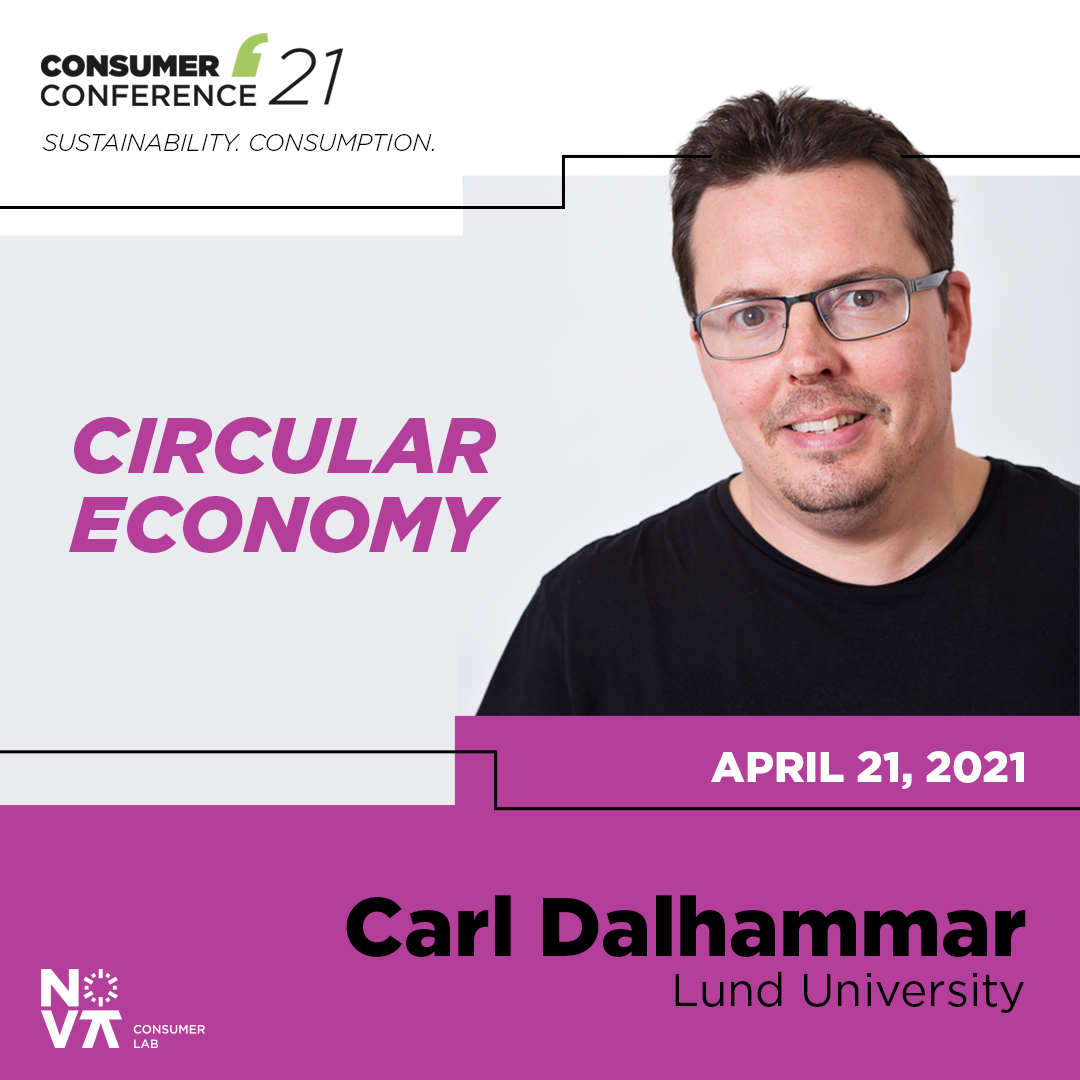
Carl Dalhammar (CD) is associate professor at IIIEE, Lund University. He currently leads the CREACE research program, and the Policy project in the Mistra-Rees (mistrarees.se) program. In his research he has analysed numerous environmental laws and policies, including the Ecodesign Directive, Circular Economy policies, planned obsolescence, EU energy efficiency laws, government procurement programs, ecolabelling schemes, energy labelling, the Nordic electricity market, and public funding for cleantech. Dalhammar teaches environmental law and politics in several European and Swedish master and undergraduate programs. He has been invited speaker at several events in Brussels and at several events for industry and policymakers.
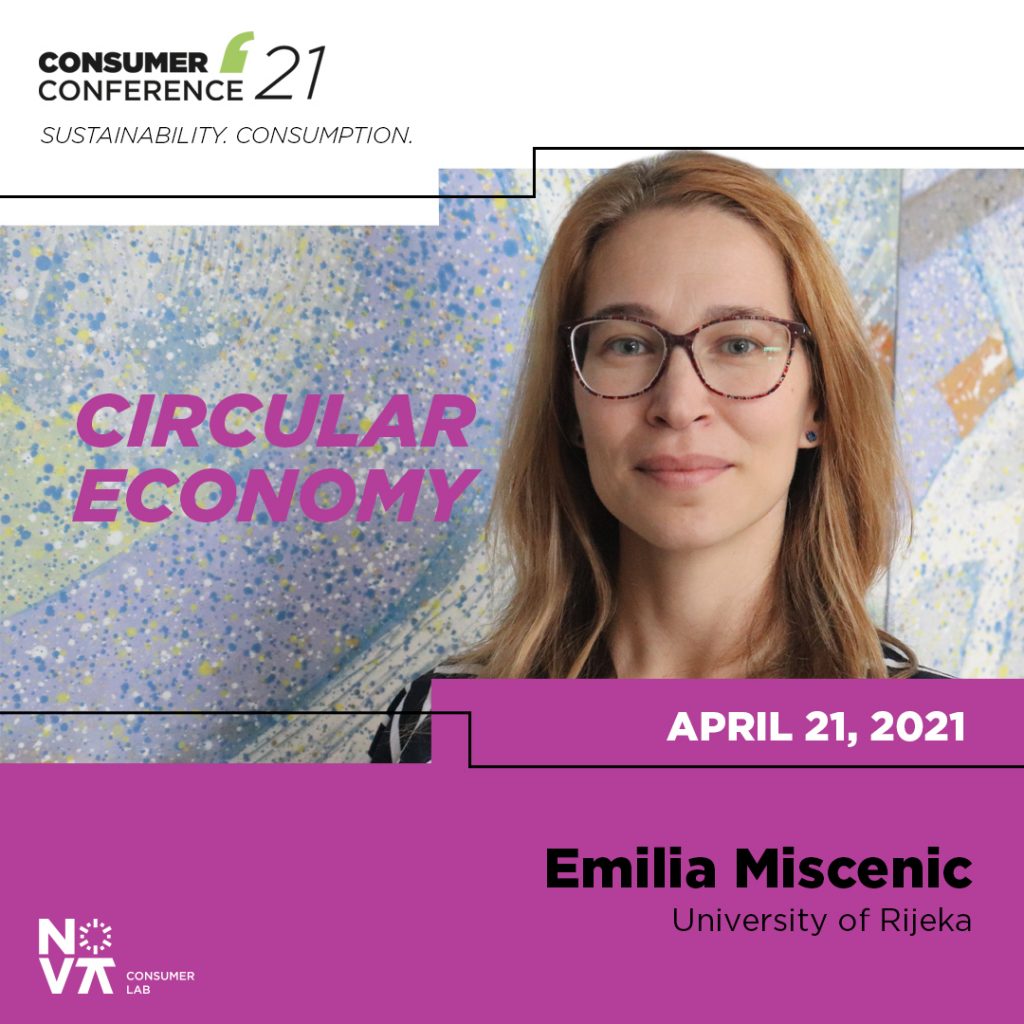
Emilia Mišćenić is an Associate Professor at the Department of International and European Private Law at the Faculty of Law of the University of Rijeka. She obtained her master’s degree from the Europa-Institut Universität des Saarlandes (Germany), and her doctoral degree at the scientific study programme Rechtswissenschaftliche Fakultät Karl-Franzens Universität Graz (Austria). She authored the book in German language on consumer credit agreements published by LIT Verlag in 2010. The monograph was cited by the AG Trstenjak in the CJEU case Pereničová et Perenič, and awarded with the annual Croatian National Science Award in 2011. In 2020 she was awarded with the annual State Award ‘Ivan Filipović’ for outstanding scientific and professional efforts and results and for the first Croatian handbook on European Private Law.
She was or currently is involved in several national and international research projects, including the JUST project of the European Commission An evaluation study of national procedural laws and practices in terms of their impact on the free circulation of judgments and on the equivalence and effectiveness of the procedural protection of consumers under EU consumer law, led by MPI Luxembourg for Procedural Law. She is a member of the International Association of Consumer Law, Croatian Comparative Law Association and co-chair of the Croatian Hub of the European Law Institute. She is also a member of the COVID-19 – Consumer Law Research Group.
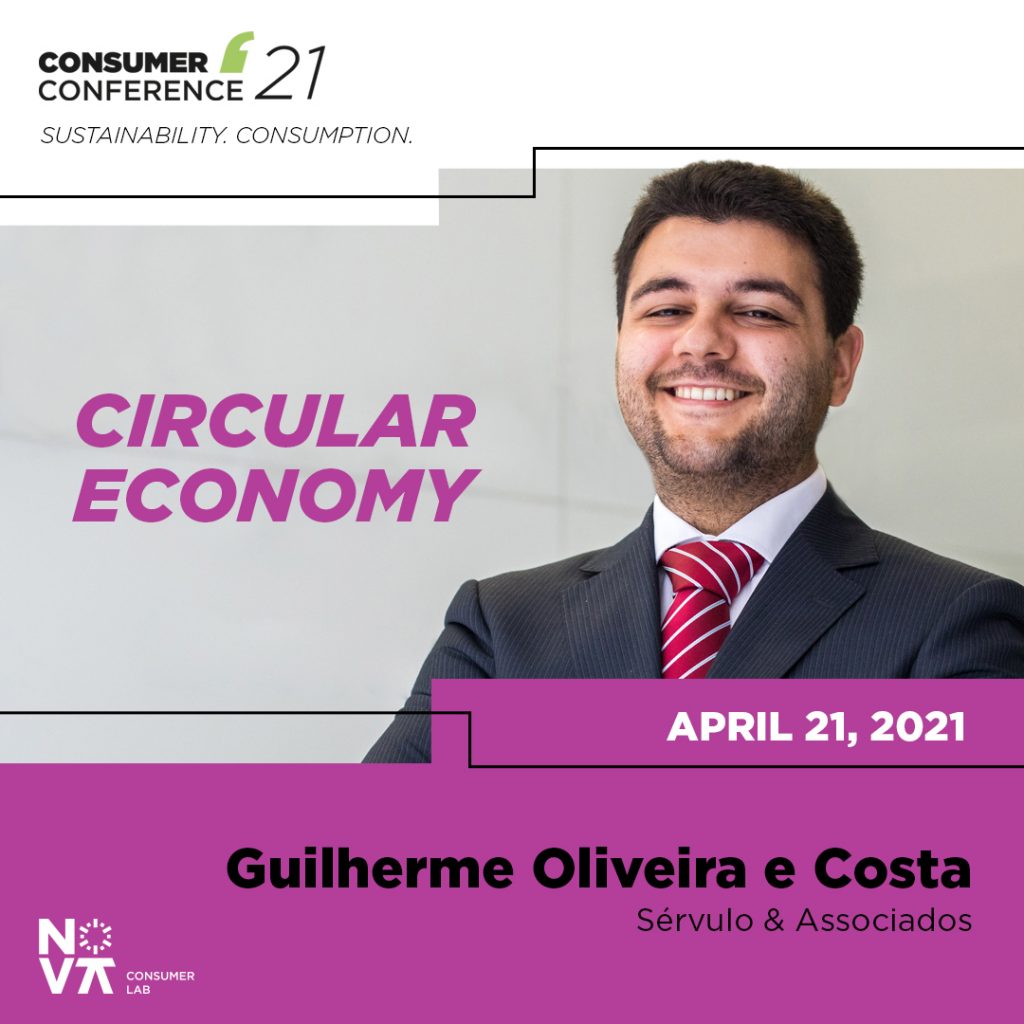
Guilherme Oliveira e Costa is an Associate Lawyer in European and Competition Law department at Sérvulo & Associados, SP, RL, where he joined as a trainee lawyer in 2018. He is also member of Sérvulo’s service ESG (Environment, Social and Governance). He joined the Bar Association in 2021. He concluded the Master in International and European Law from NOVA School of Law, in 2018. Postgraduate in Competition and Regulation Law by the School of Law of the University of Lisbon. Graduated in Law from NOVA School of Law, in 2016.
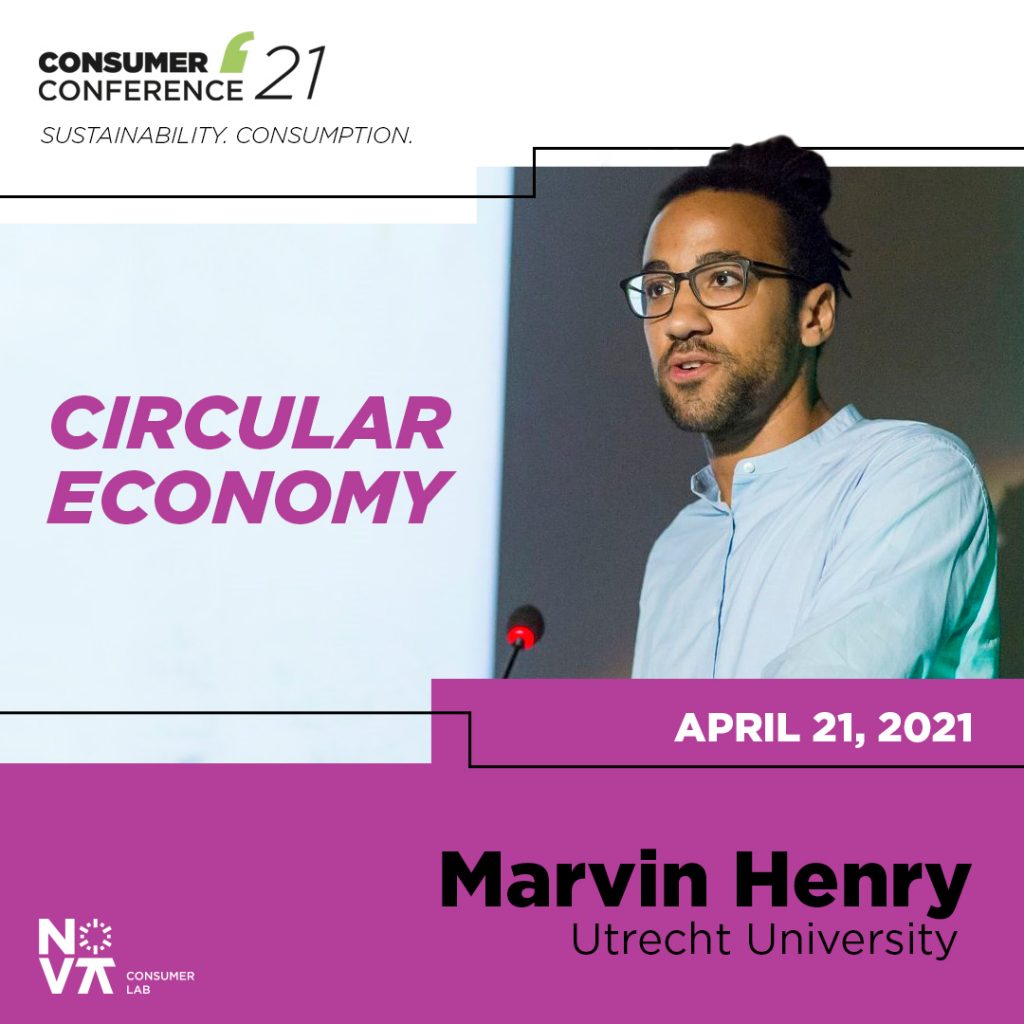
Marvin Henry is an academic from Utrecht University, the Netherlands, and a Senior Consultant at McKinsey & Co.. He is a PhD candidate and lecturer at the Innovation Studies Group of Copernicus Institute for Sustainable Development. In his academic work, he examines sustainability transitions ad innovation ecosystems. Most of his current work investigates the circular economy concept as a vehicle for such transitions, focusing on the role of circular start- ups. He supervises several student and research projects on the circular economy and sustainable business models. He supports the Ashoka Globalizer program as a pro-bono advisor and is a mentor for Deutschlandstiftung Integration.
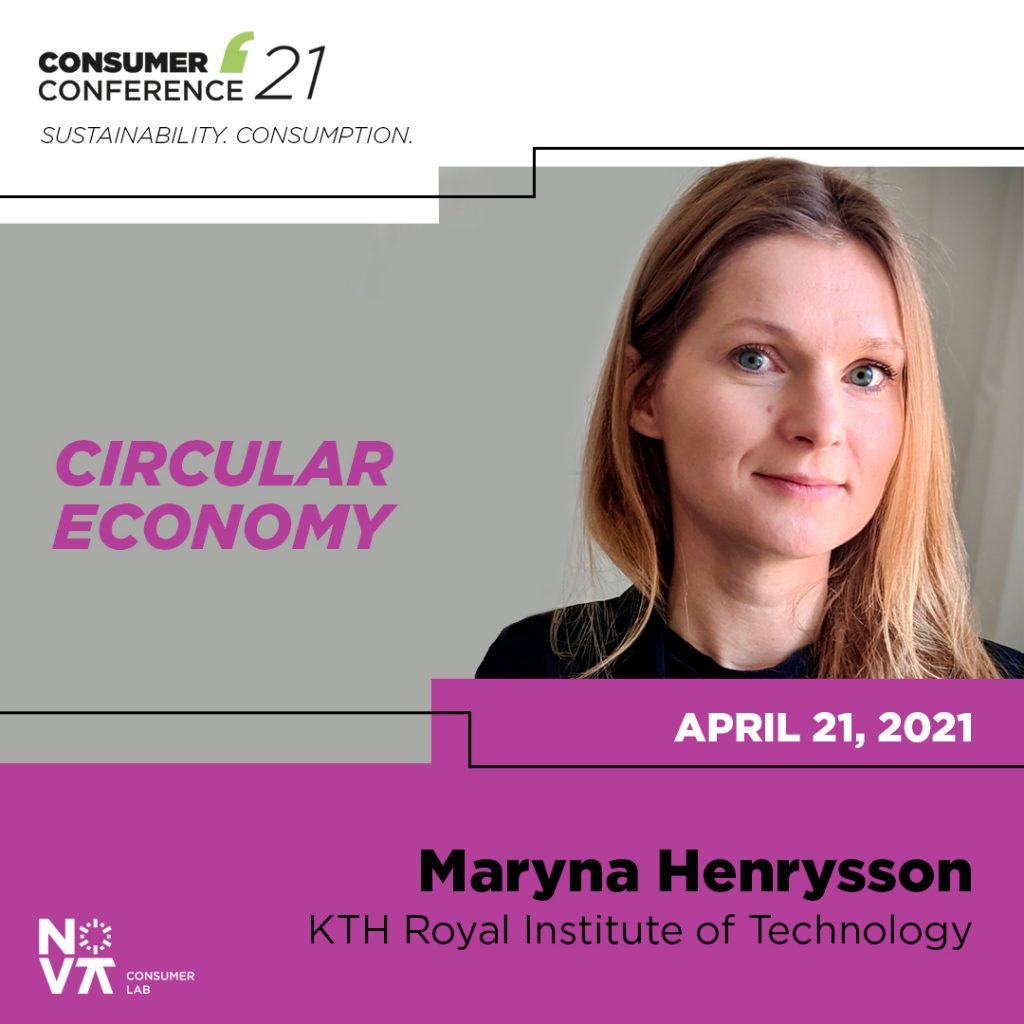
Dr. Maryna Henrysson is a senior researcher at the Energy Systems Division at KTH, the Royal Institute of Technology, Sweden. Her earlier research has been focused on the energy sector governance and national climate change mitigation policies in newly emerging economies. Currently, she investigates the collaborative governance of innovation in industrial strategies for circular economy model transformation in urban and regional energy systems. She is assessing methodologies, needs and capacities for evaluating and measuring circular performance at the urban level and how current scientific knowledge of what constitutes a circular city is being used in policy-making.
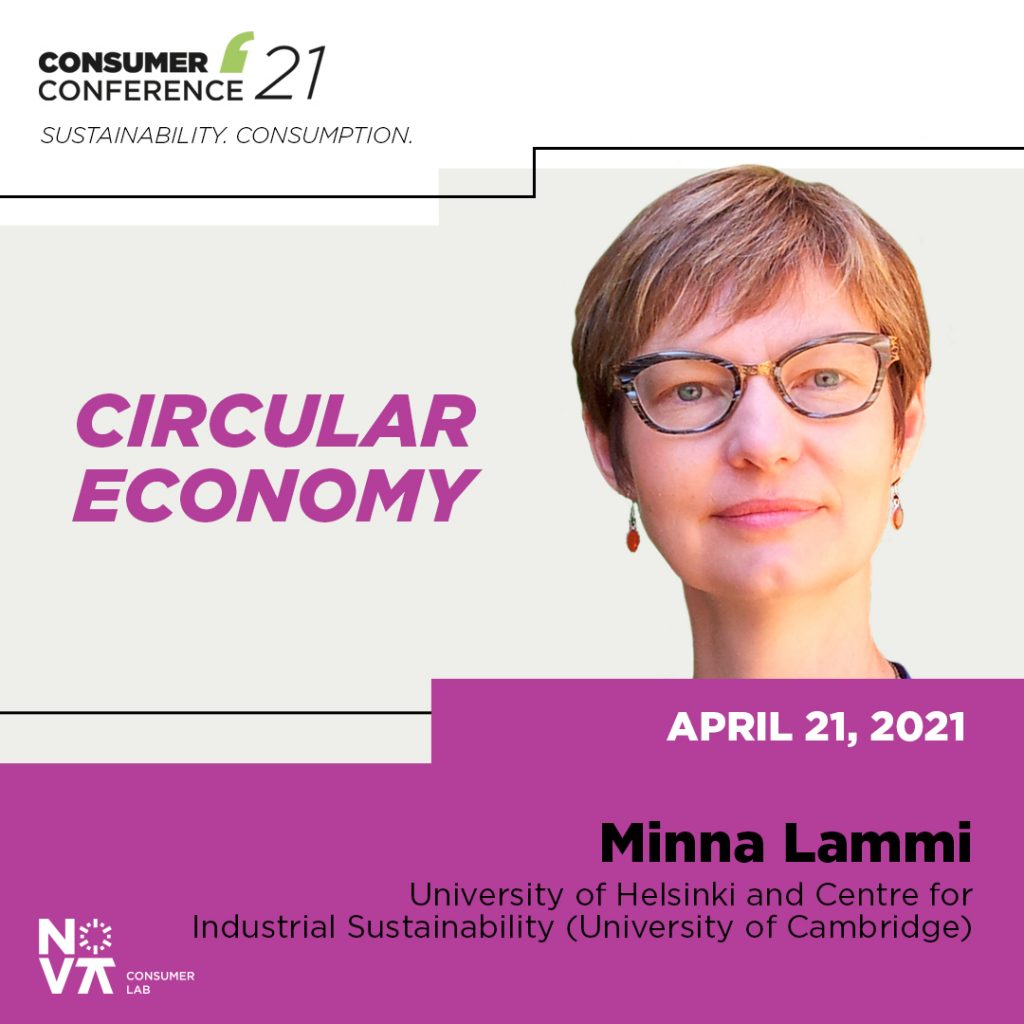
Dr Minna Lammi is an adjunct professor at the University of Helsinki, where she is leading research projects exploring changes in society, consumption and business in the emerging circular economy. She is an expert in the social construction of consumption and changes towards more sustainable practices in consumer society. One of her main interests is how ideas and innovations emerge in society. Since April 2016, she has worked as a visiting scholar at the Centre for Industrial Sustainability, Institute for Manufacturing, University of Cambridge.
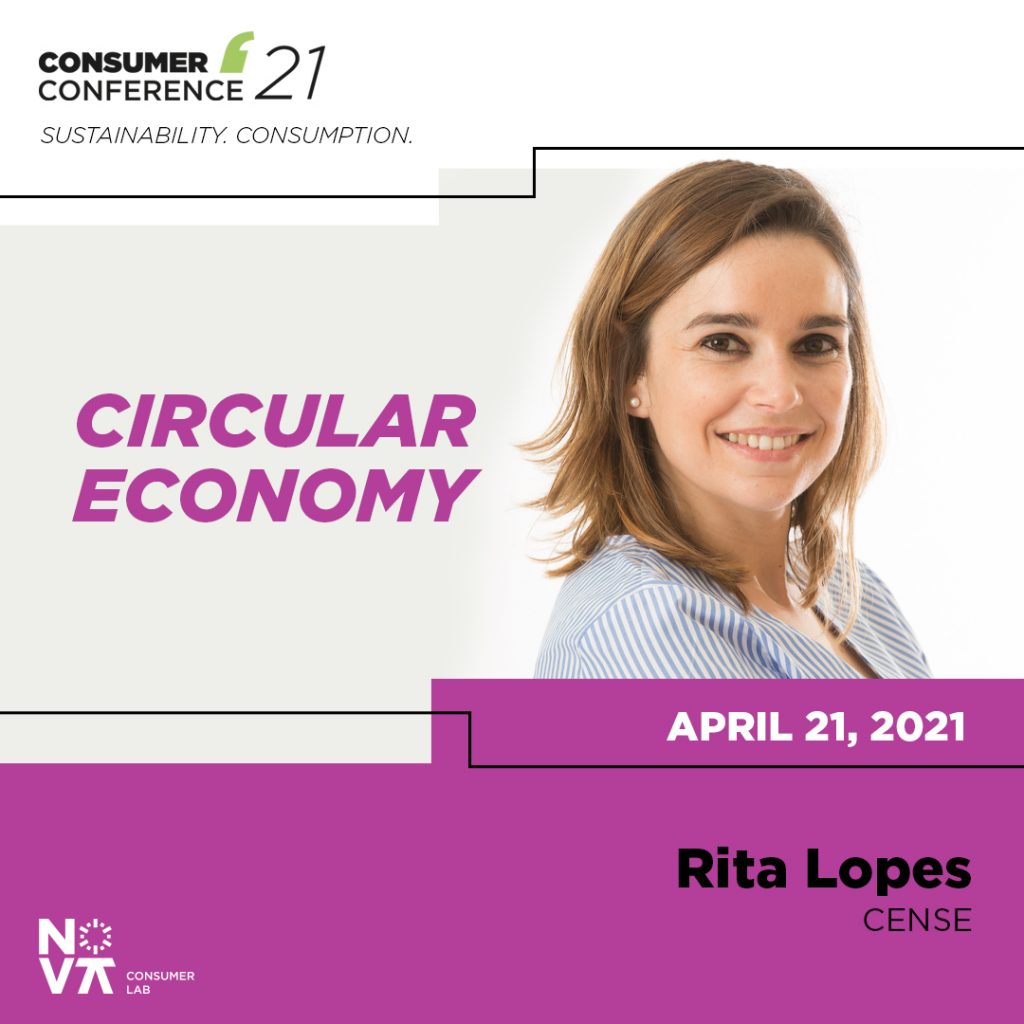
Rita is a researcher at CENSE, Center for Environmental and Sustainability Research at NOVA University of Lisbon. Her main research topics are circular economy, low carbon economies, socio-ecological systems and ecosystem services valuation, where she has been developing and applying different collaborative tools and mix-method approaches. She has extensive national and international experience in the design and conduction of collaborative processes, engaging different stakeholder groups from public authorities, business, civil society and research in knowledge co-production and sharing experiences.
She was part of the team developing the project “Circular Economy Potential in Portugal: The case of Packaging and Food and Beverages Sectors” and the “Portuguese Carbon Neutrality Roadmap 2050”.
Rita was recently elected as a board member of the International Society of Ecological Economics. She is an environmental engineer with a Ph.D in Climate Change and Sustainable Development Policies, joint program NOVA University of Lisbon and University of Lisbon (2017).
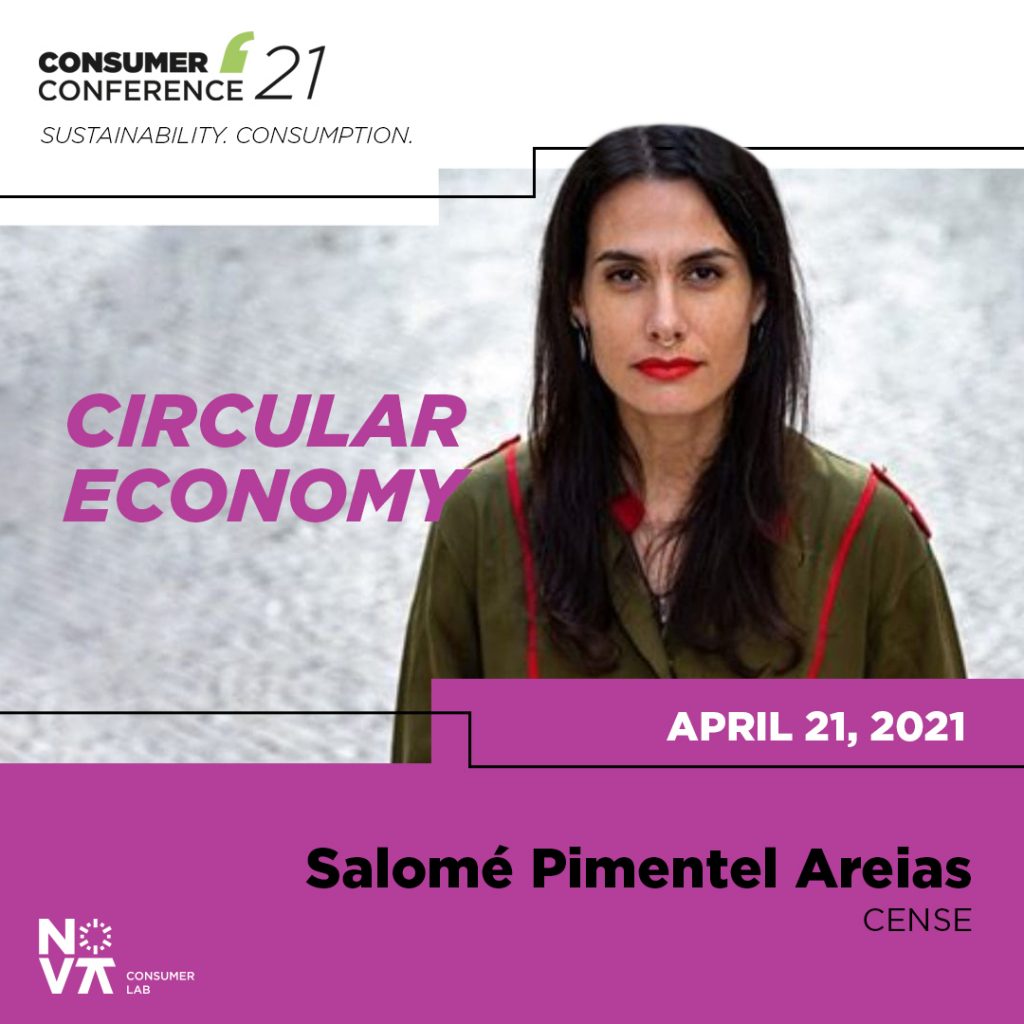
Salomé is an activist passionate about consumer behaviour. She studied fashion design and fashion sociology between Lisbon and Buenos Aires and soon realised fashion trends were not a realistic portrayal of our culture, but instead a strategy to fuel perceived obsolescence. Her ideas about fashion having slower culturally-biased trends in 2010 took her to Science of the Time, Trendwolves, and PSFK. Also teaching and speaking in several events about consumer behaviour, and working as a product manager, she lived in Ghent, Zhuhai, and Luanda. As the founder of the Fashion Revolution in Portugal in 2014, she dug deeper into Sustainability and wondered if transparency within supply chains was enough to make people act collectively towards climate justice. Recent findings on psychoanalysis and mindfulness inspired her to pursue a PhD at CENSE on how to raise consumer awareness through these practices, for which she was granted an FCT scholarship under the PhD program in Environment and Sustainability (PDAS) at NOVA School of Science and Technology.
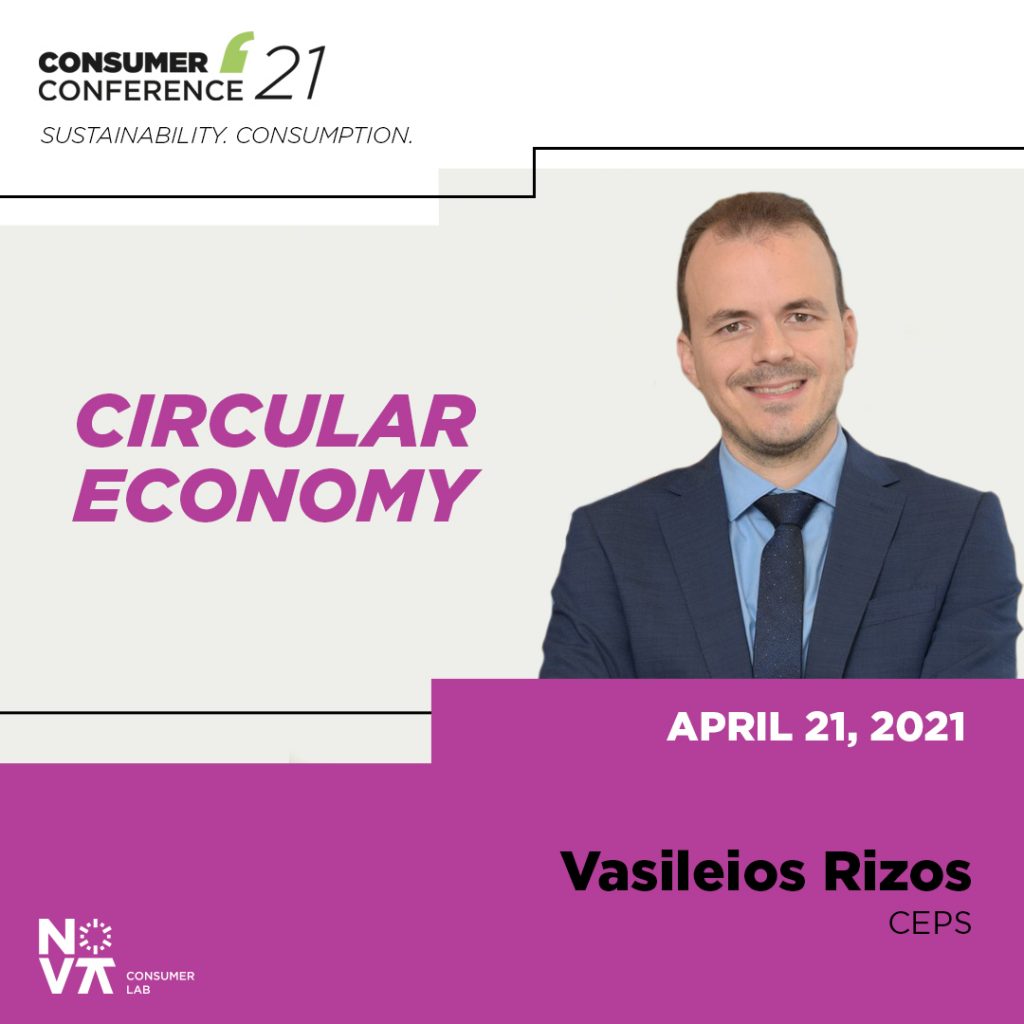
Vasileios Rizos is a Research Fellow and Head of Sustainable Resources and Circular Economy at CEPS.
He is an expert in various aspects of the circular economy and analyses regulatory and market barriers to the adoption of circular economy practices in Europe and beyond.
Vasileios’ main research areas include circular economy policies, industrial sustainability, green value chains and resource efficiency indicators. He was co-chair of the Circular Economy Task Force of the Think20 (T20) network that supported G20 activities under the German presidency 2016-17. Between 2016 and 2018 he was the coordinator of the CEPS Task Force on the Role of Business in the Circular Economy that brought together executives from major multinational companies as well as representatives of NGOs and research institutes.
Previously Vasileios worked in DG Environment at the European Commission and the Confederation of European Paper Industries (CEPI). He is the lead author of several publications on circular business innovation and policy instruments that can encourage the green market transition.
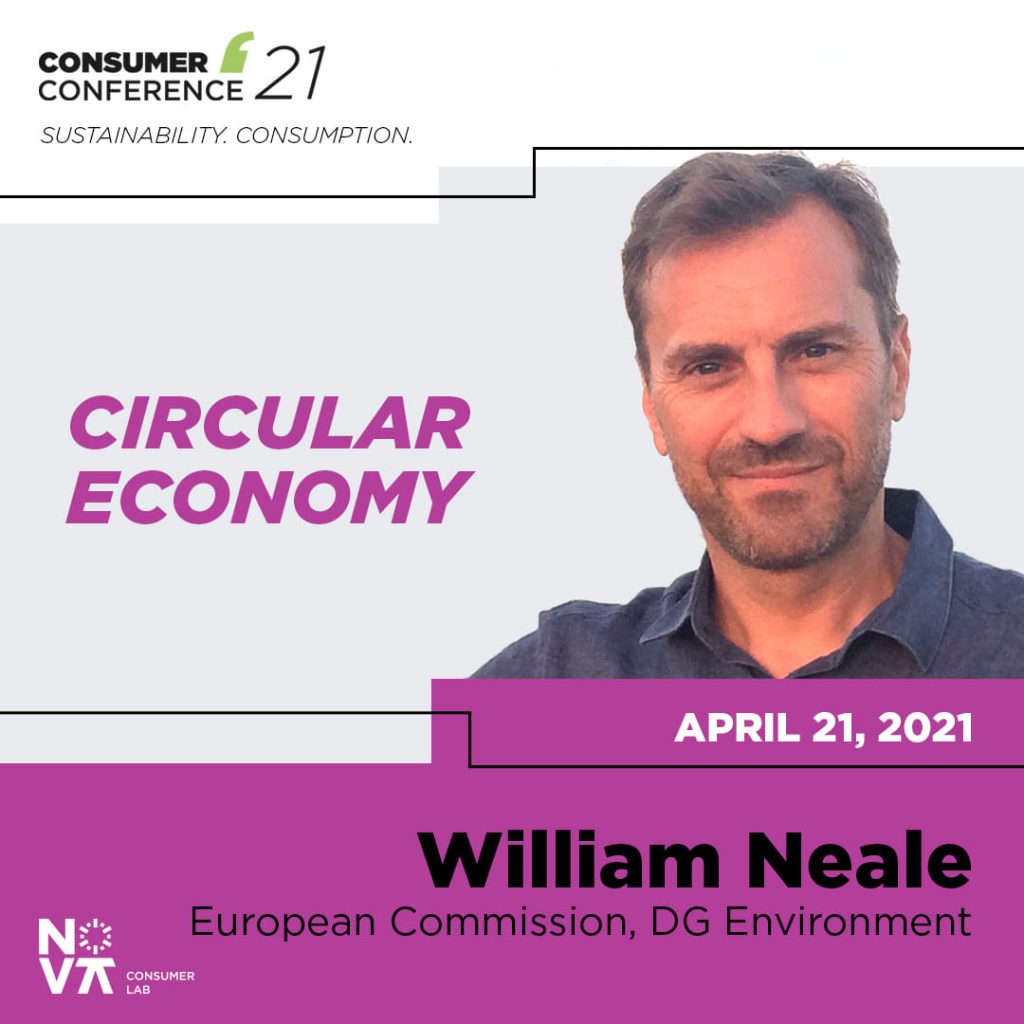
William Neale is Adviser on Circular Economy and Green Growth for the European Commission’s Environment Directorate General.
He served 11 years as a Member of Cabinet (private office) of European Commissioners; firstly for Commissioner Janez Potočnik across two mandates as European Commissioner for Science and Research, then Commissioner for Environment; subsequently for Commissioner Karmenu Vella in his term as Commissioner for Environment, Maritime Affairs and Fisheries. In cabinets he held responsibility for relations with the European Parliament and the Council of Ministers, planning, resources and budget, and advised Commissioners on development of policies on circular economy, resource efficiency, sustainable production and consumption, environmental technologies, eco-innovation, waste policy, transport, aeronautics, research infrastructures and external relations. Mr. Neale started his career in public service working for 7 years in the European Commission's Directorate General for Enterprise and Industry. He previously spent 13 years in the private sector in the fields of international banking, retail and management consultancy. He holds a joint honours degree in economics and history, and a masters in political science, both from the University of Manchester (UK).
Consumer Law and Sustainability
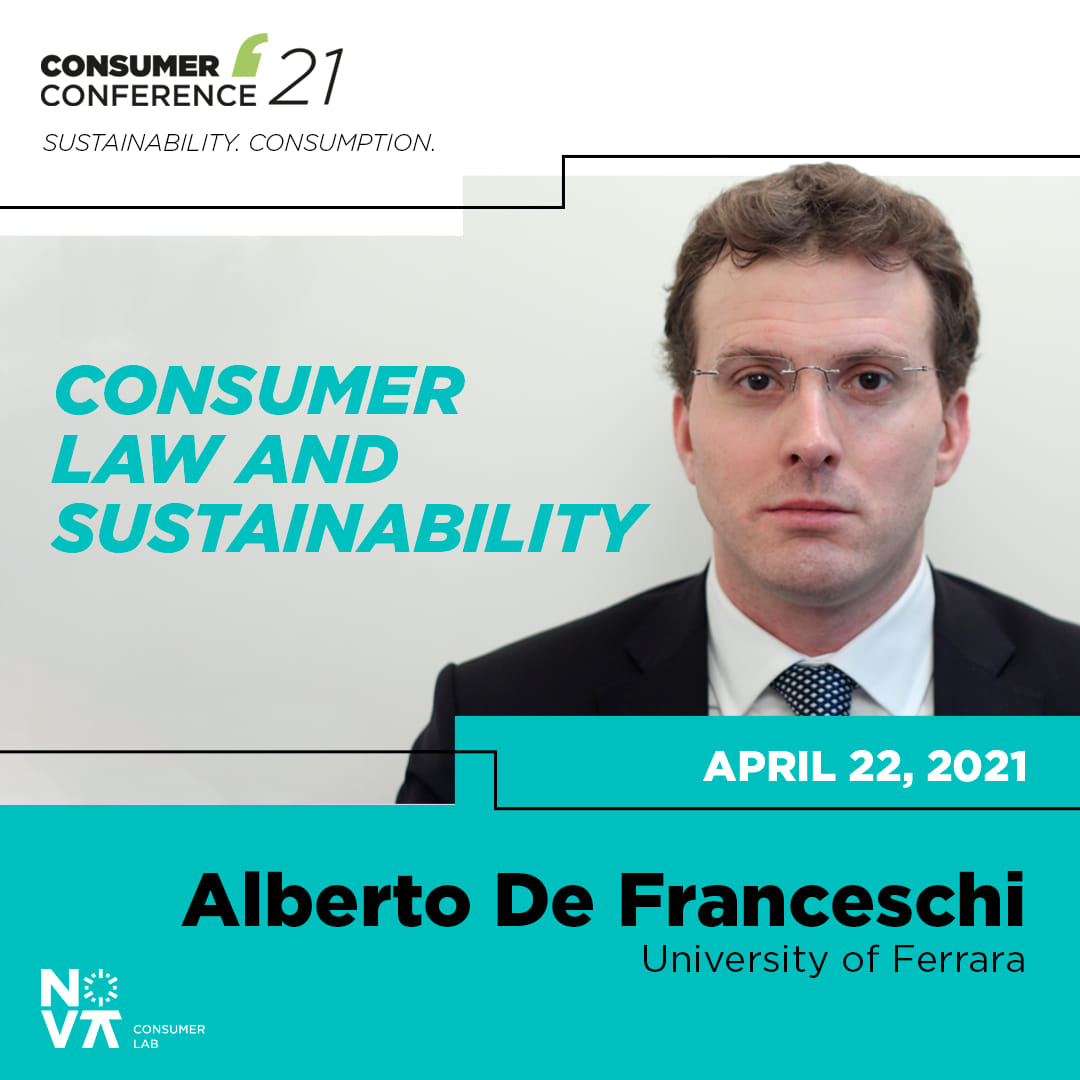
Alberto De Franceschi is Full professor of Private Law, Intellectual Property Rights and Environmental Law at the University of Ferrara (Italy). He is co-chairman of the European Law Institute’s Digital Law Special Interest Group, founding member of the European Law Institute’s Environmental Law Special Interest Group, co-editor of the Journal of European Consumer and Market Law (EuCML) and of The Italian Law Journal. His current research focuses on the supply of digital content, online platforms, artificial intelligence and sustainable consumption.
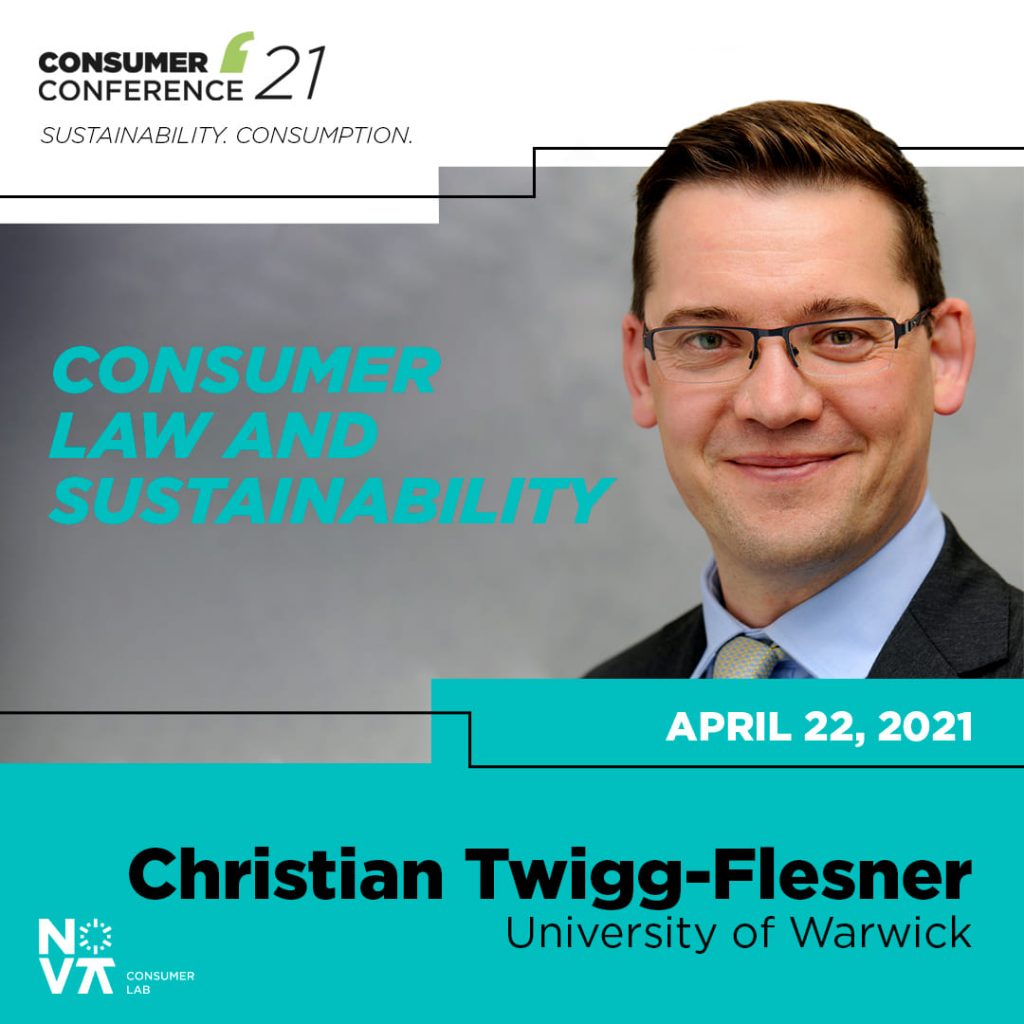
Professor Dr Christian Twigg-Flesner LL.B. PCHE Ph.D. (Sheffield) is Professor of International Commercial Law at the University of Warwick (since September 2017). Previously, he was Professor of Commercial Law at the University of Hull, having joined there as Lecturer in 2004, and a Lecturer at Nottingham Trent University (1999-2002) and Sheffield University (2002-4).
He is a Fellow of the European Law Institute, an Associate Academic Fellow of the Honourable Society of the Inner Temple, and one of the Law editors for the Journal of Consumer Policy. He has been a Senior International Fellow at the University of Bayreuth (2016-18), and visiting professor at the universities of Münster, Bielefeld, Osnabrück, and City University Hong Kong.
His research interests are in the areas International, English and European Commercial, Consumer and Contract Law, with a particular focus on the implications of digitalisation. He has published many articles and book chapters on EU Consumer and Contract Law
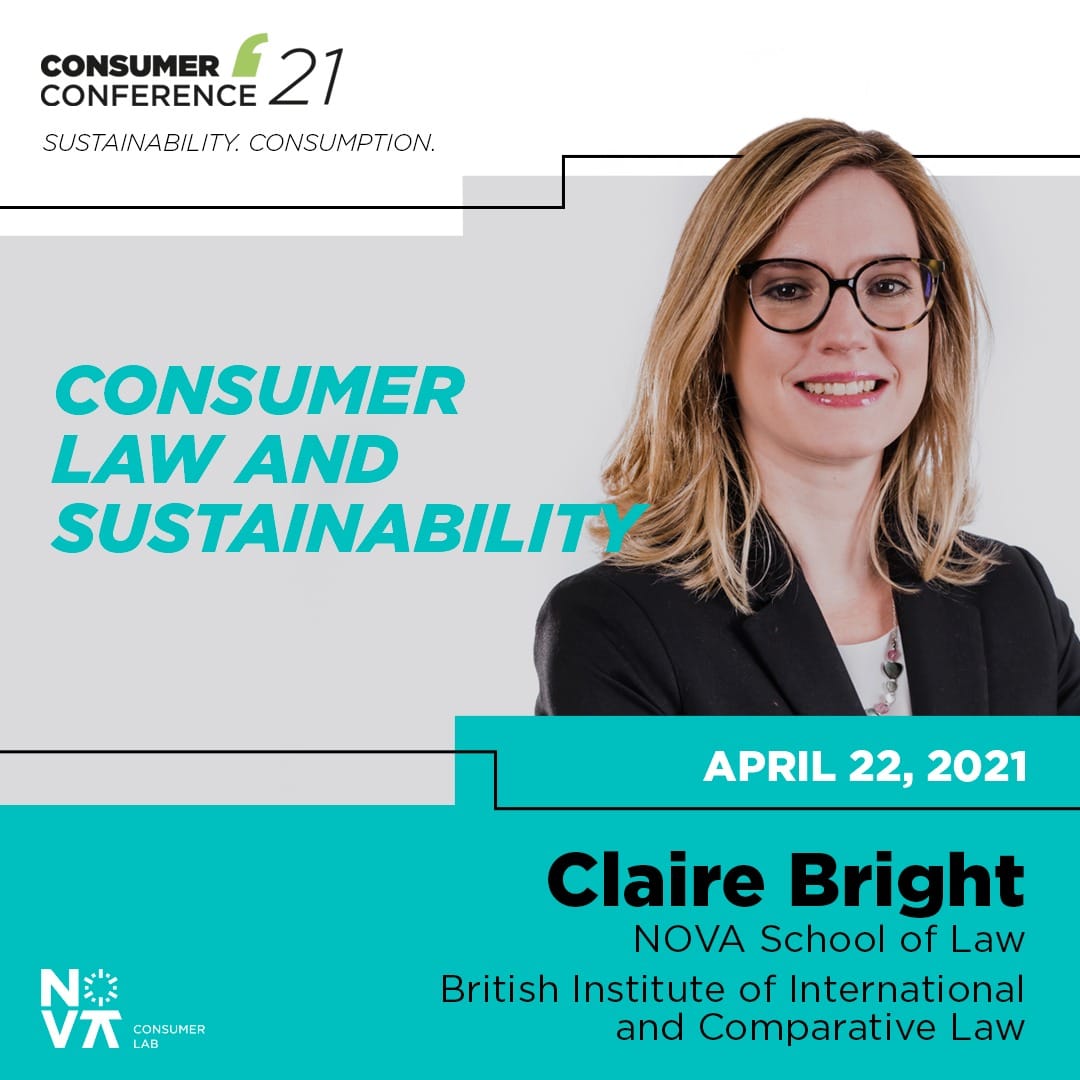
Claire Bright is Assistant Professor in Private Law and Director of the NOVA Centre on Business, Human Rights and the Environment at Nova School of Law, as well as an Associate Research Fellow at the British Institute of International and Comparative Law She specialises in Private International Law, International Commercial Law, Comparative Private Law and Business and Human Rights. She holds a PhD in International Law from the European University Institute, an LL.M in Private International Law and International Commercial Law from La Sorbonne Law School and a Double Bachelor’s degree in French and English Laws from UPEC.
She worked as a Research Assistant at the Centre for Socio-Legal Studies of the University of Oxford, an Associate lecturer at Oxford Brookes University and as a Lecturer at the London School of Business and Management. She was also a Max Weber Fellow at the European University Institute of Florence
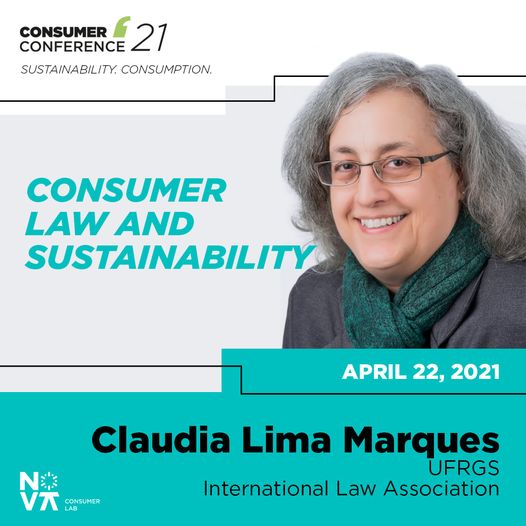
Claudia Lima Marques holds a PhD in Law from the University of Heidelberg. She is Professor at the Federal University of Rio Grande do Sul (Brazil). She is also President of the Committee on International Protection of Consumers, at the International Law Association.
Claudia Lima Marques is also Director of the “Revista de Direito do Consumidor” (Thomson Reuters) and a former President of the Brazilian Institute for Consumers Policy and Law (BRASILCON).
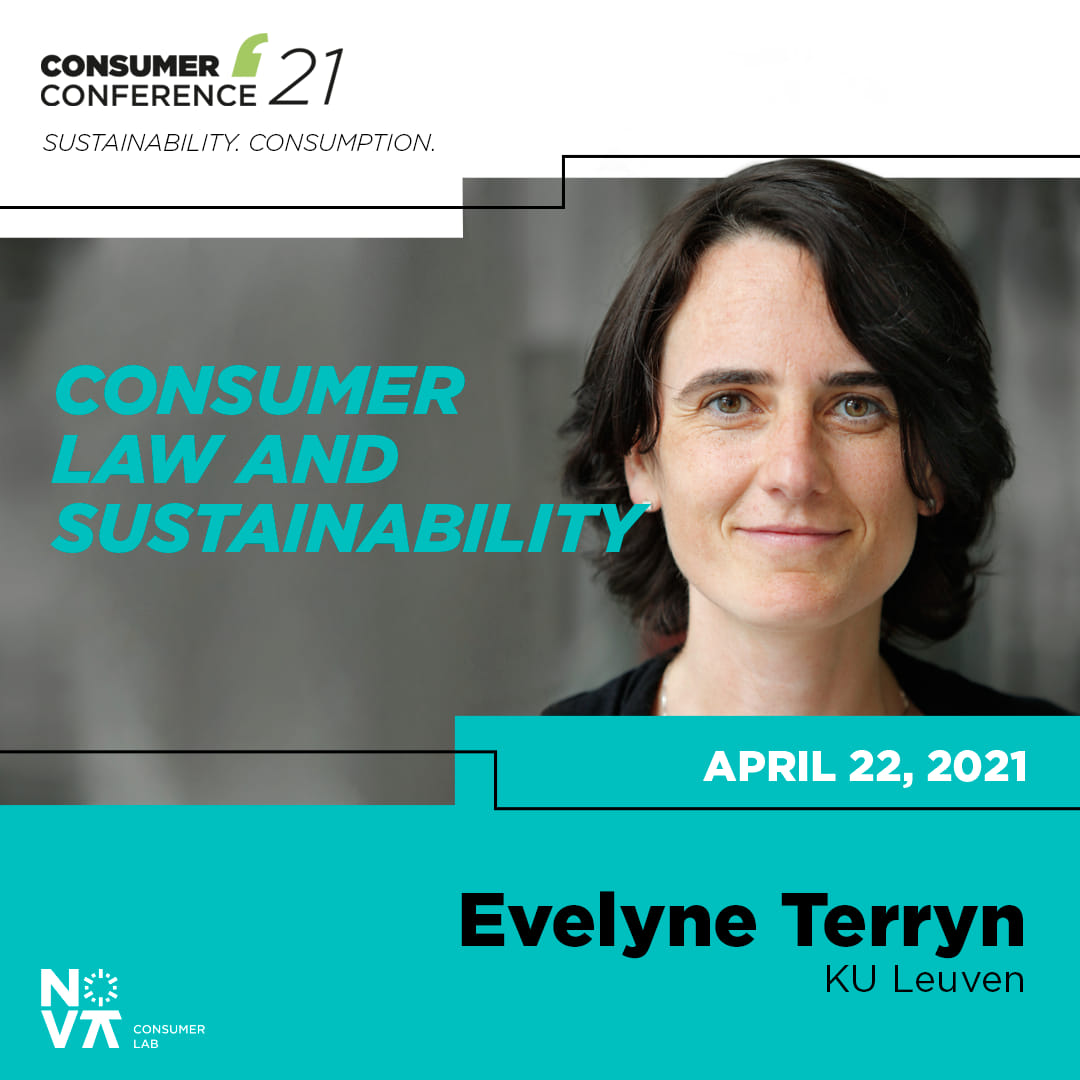
Evelyne Terryn is full professor at the KU Leuven of commercial law and consumer law. She is co-director of the research institute Consumer Competition Market. She studied law at the KU Leuven (summa cum laude, 1997), London (King’s College, 1996) and Oxford (New College, MJur, first, 1998). She obtained her PhD in 2005 at the KU Leuven (Right of with drawal as in instrument of consumer protection – Raymond Derine prize). She was a guest professor at the Universiteit of Amsterdam and the China EU School of Law (Beijing). She is co-editor in chief of DCCR (Tijdschrift voor Consumentenrecht) member of editorial committee of the Dutch Tijdschrift voor Consumentenrecht. She was a member of the European Consumer Law Group, Consumer Law Enforcement Forum and the Acquis group on European Contract law and is a member of the ELI (European Law Institute). Her research focuses on European consumer law and contract law. She is co-editor (with J. Stuyck, H. Micklitz and D. Droshout) of the Ius Commune Casebook on Consumer Law (Hart, Oxford). She has published extensively in this field. She has also published in the field of circular economy and sustainability. Evelyne participated in numerous European and national studies in consumer law, including a recent study for the European Parliament on sustainable consumption.
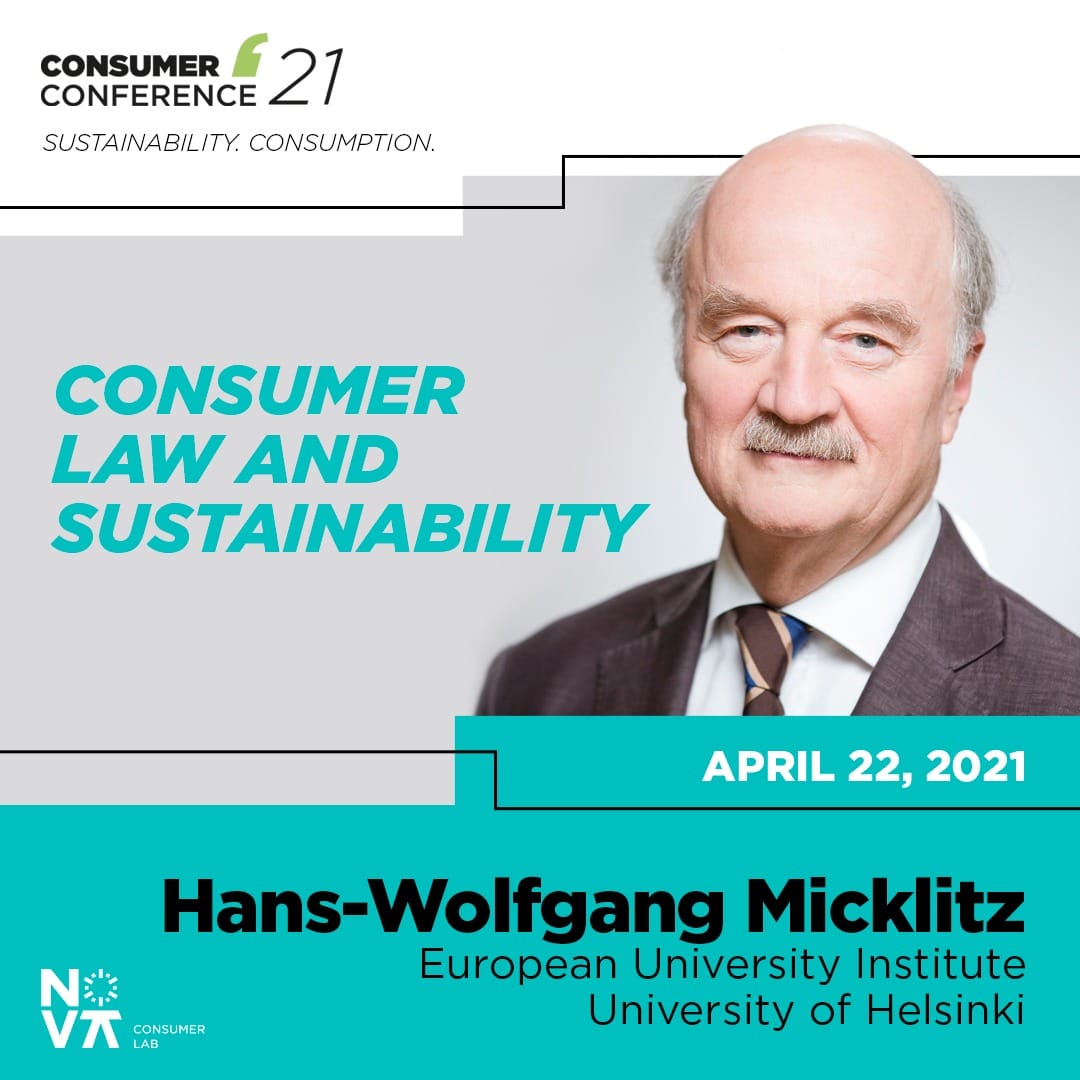
Professor of Economic Law at the Robert Schuman Centre for Advanced Studies, European University Institute. Finland Distinguished Professor, University of Helsinki.
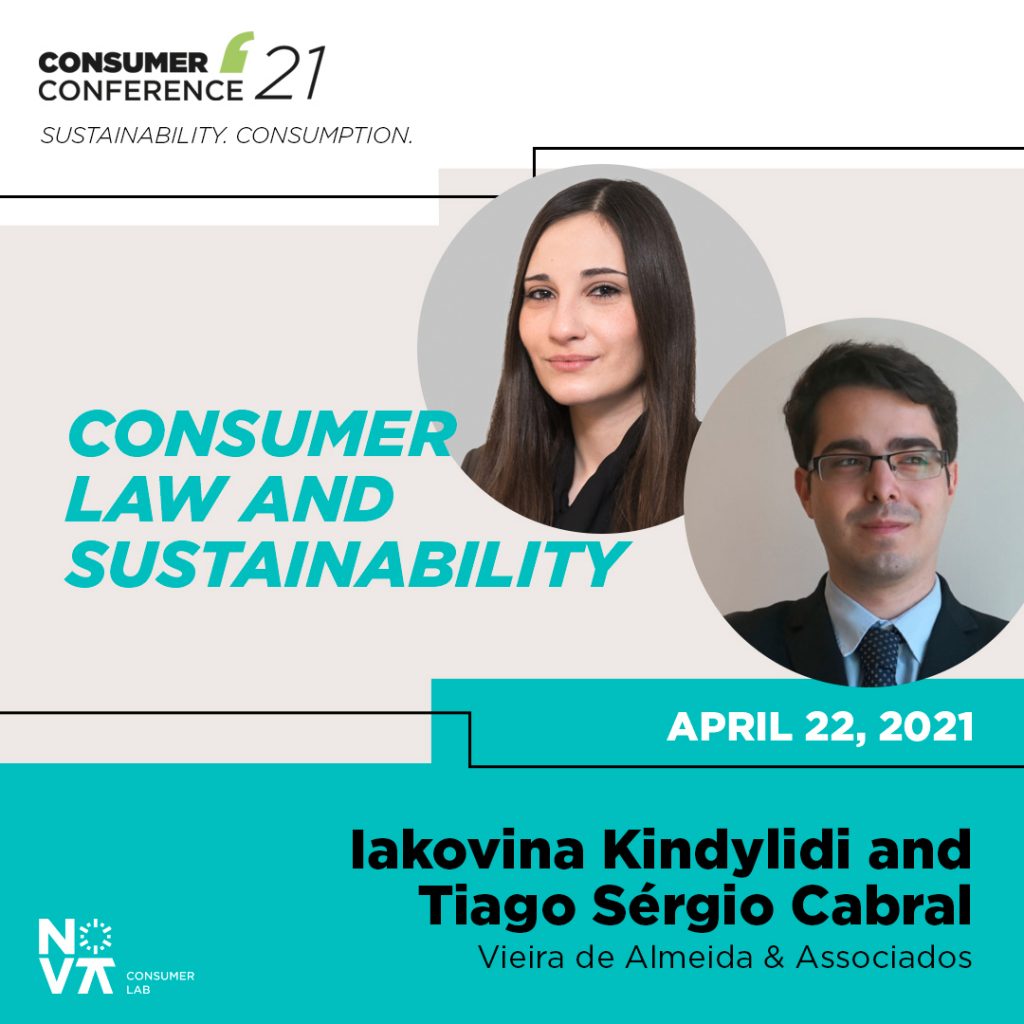
Iakovina Kindylidi is an international adviser in is an international adviser at Vieira de Almeida & Associados’ ICT practice area. She works with emerging technologies: AI, DLT, IoT, and platforms. She also provides advice on matters relating to IT, data protection, cybersecurity and consumer protection. She has participated as speaker in various seminars and classes on emerging technologies. She is admitted to the Athens Bar Association and is registered as a lawyer of a European member state in the Portuguese Bar Association. She holds an LL.M in International Business Law from Tilburg University. Her recent publications include “Smart Companies: Company & board members liability in the age of AI”, UNIO – EU Law Journal, 6(1), 115-141.
Tiago Sérgio Cabral is an associate at Vieira de Almeida & Associados’ ICT practice area and a researcher at JUSGOV-CEDU. He holds a Masters’ Degree in European Union Law from the University of Minho and has authored a significant number of articles related to IT law, data protection and EU law in both national and international journals (available here).
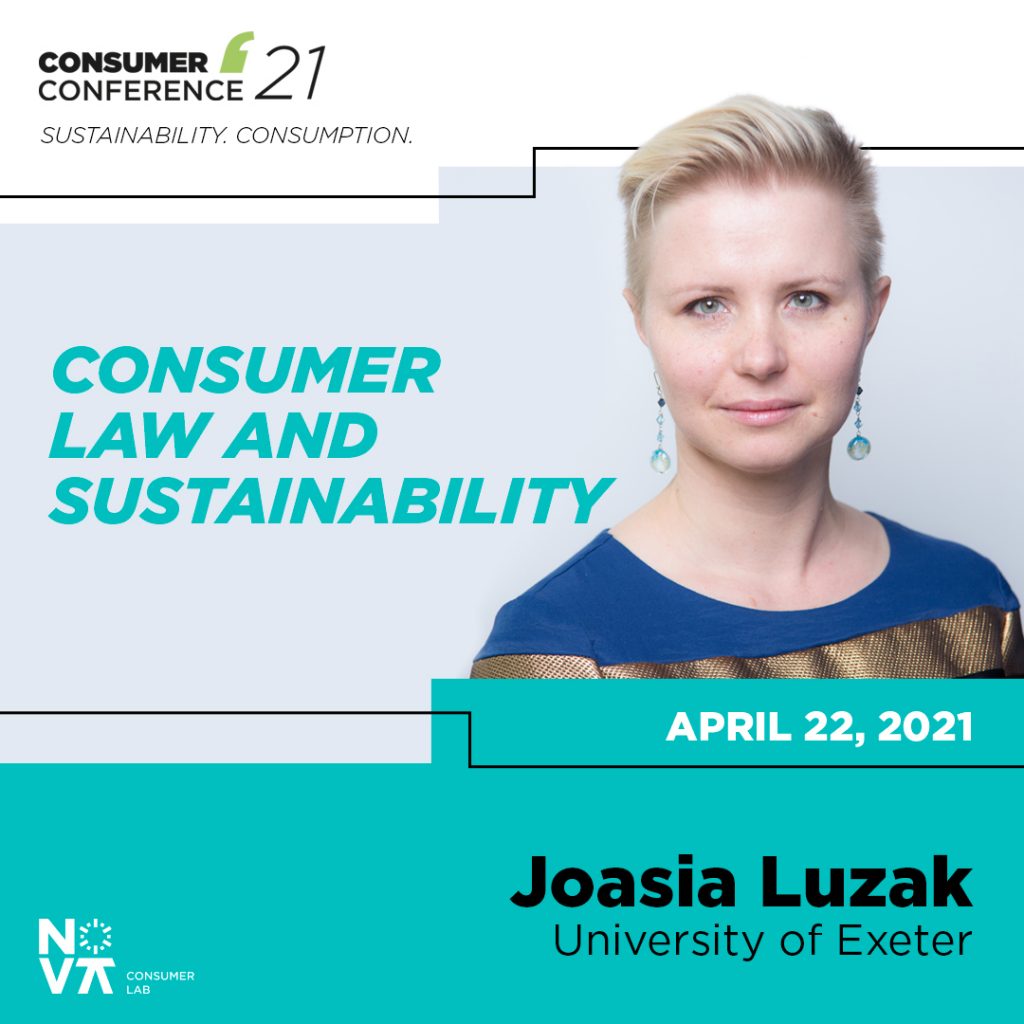
Dr. Joasia Luzak is an Associate Professor in Law (Education and Research) and the Director of the Centre for European Legal Studies (CELS). She is also a Guest Associate Professor at the Centre for the Study of European Contract Law (CSECL) at the University of Amsterdam, the Netherlands.
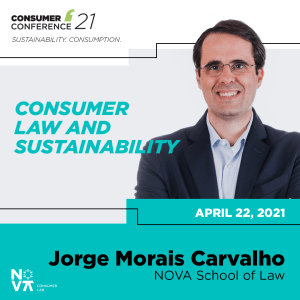
Jorge Morais Carvalho has a Law Degree (2002) and a PhD (2011) from the NOVA School of Law.
He is an Associate Professor at NOVA School of Law, where he is the Coordinator of the Degree (1st Cycle) and Coordinator of the Master in Law – Specialisation in Law & Technology. He is a Researcher at CEDIS – Research & Development Center on Law and Society, Director of NOVA Consumer Lab and NOVA Law & Tech. He is the author (or co-author) of about one hundred and ten books and scientific articles, in the areas of civil law, commercial law, consumer law, civil procedural law, alternative dispute resolution and comparative law. Jorge Morais Carvalho has participated in over one hundred seminars, conferences, scientific congresses and colloquia or training actions in Brazil, Spain, England, Italy, Peru and Portugal. He is the editor of EuCML – Journal of European Consumer and Market Law, Subdirector of Themis – Revista da NOVA School of Law and Coordinator of the Yearbook of NOVA Consumer Lab.
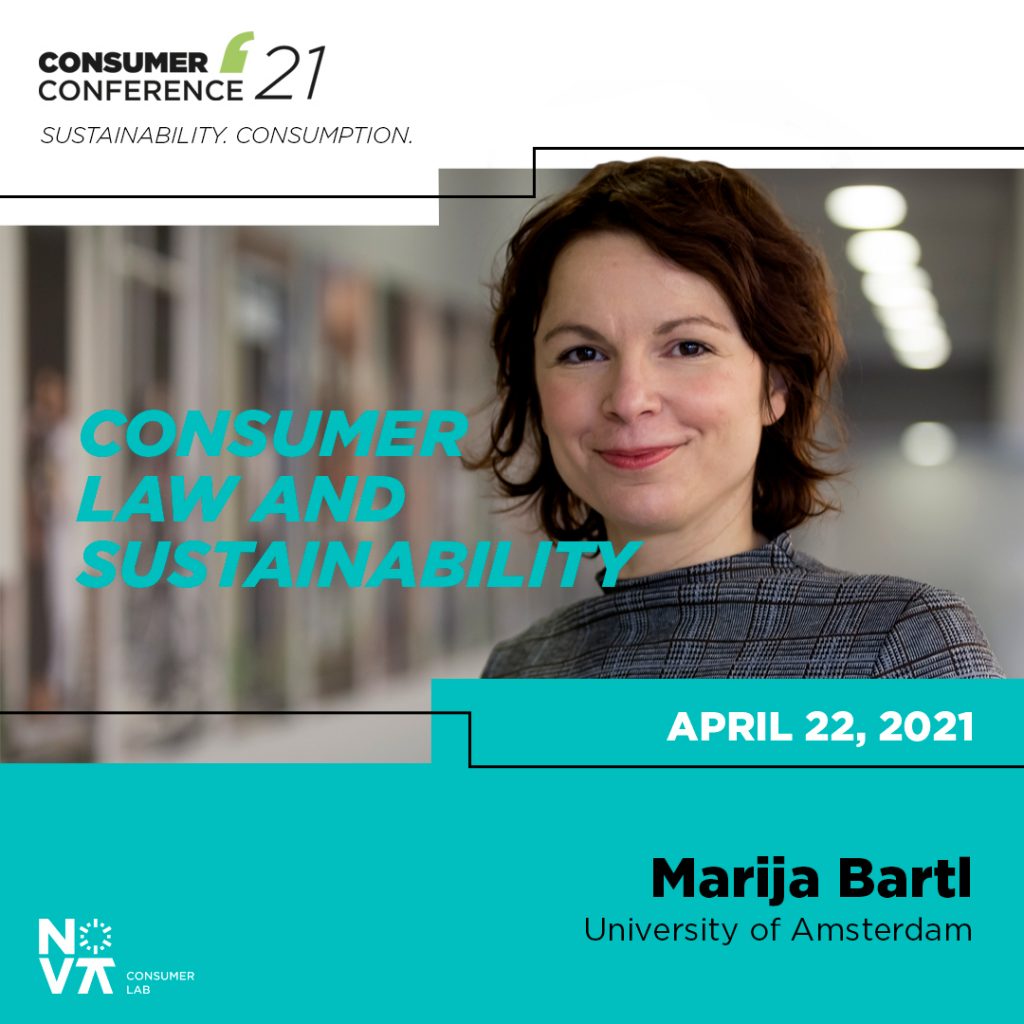
Marija is a Professor of Transnational Private Law at the Amsterdam Law School and the Director of the Amsterdam Centre for Transformative Private Law. Marija’s research agenda revolves around the relationship between law and social change. At present, Marija is completing a manuscript titled ‘New Collective Imaginaries of Progress: Future as a Legal Project’. This book explores how the ways in which we imagine law – that is both (social) reality on which law aims to intervene as well as law’s capacity to do so – shape our sense of collective agency. Marija’s new research project, for which she has been awarded an ERC Starting Grant, investigates how private law can contribute to socio-ecological transformation, by nurturing socially and environmentally ‘non-extractive economic practices’.
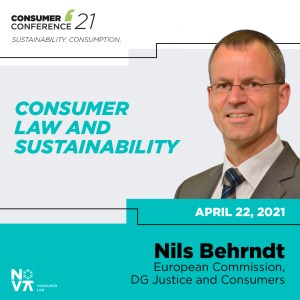
Nils Behrndt works in the European Commission as Director for Consumers in the Directorate-General Justice and Consumers.
After having worked as researcher and lawyer for some years in Germany, he has joined the European Commission in 2000. He held various positions in Directorate-General Enterprise and Industry, in the cabinets of Vice-President Günter Verheugen (Enterprise and Industry), Commissioner John Dalli and Commissioner Tonio Borg (both Health and Consumer Policy) and Commissioner Neven Mimica (Consumer Policy; International cooperation and development). Nils Behrndt has German and British law degrees and holds a Ph.D. in public administration/law.
Energy, Water and Food
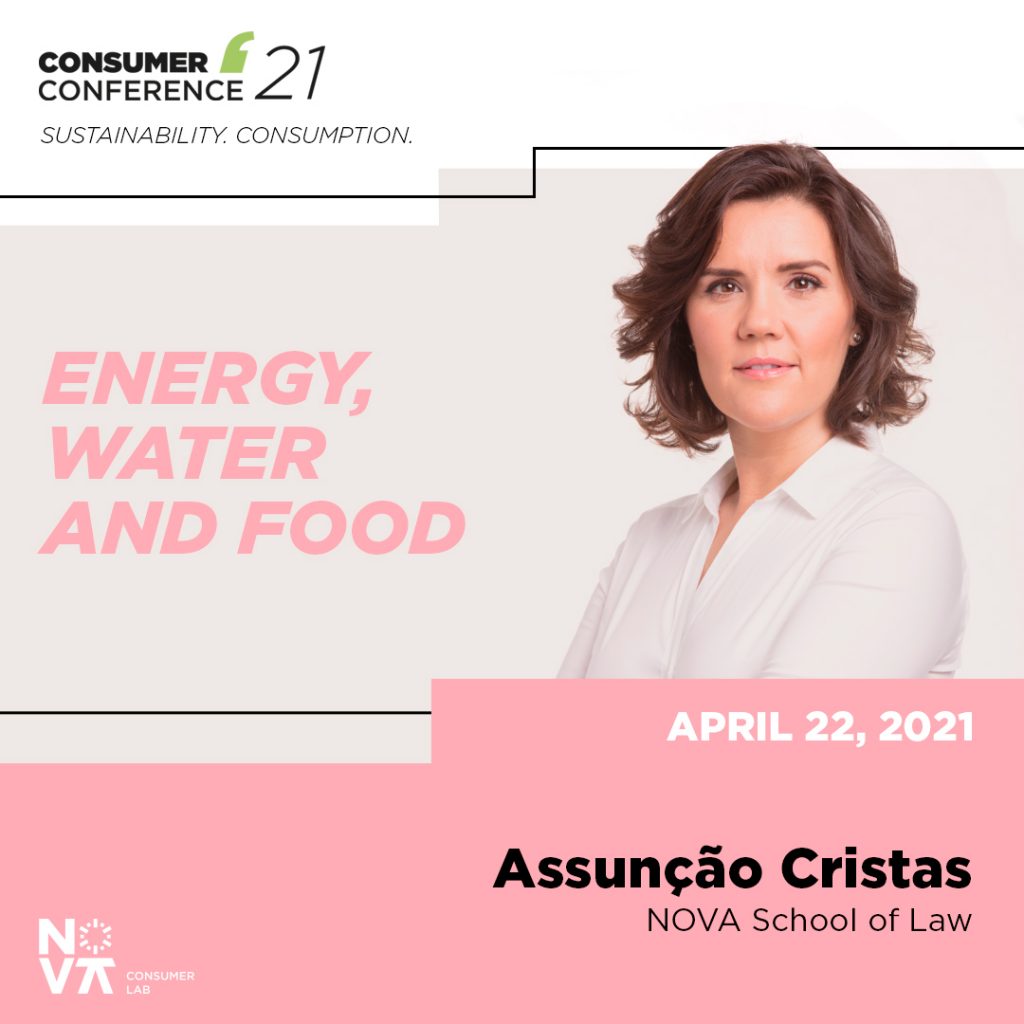
Assunção Cristas, born in 1974 in Luanda, is married and has four children.
She was part of the First Doctoral Course of the Law School of Nova University, Lisbon (1997), where she obtained her doctorate in private law, with the thesis – Contractual Transmission of Credit Law. The true nature of credit claims (Almedina, 2005). She’s been a Professor with NOVA School of Law ever since. She has a law degree from Lisbon University Law School (1997), where she was a monitor (95/96) and a trainee assistant (97-99), until she opted to dedicate herself exclusively to the preparation of her PhD at NOVA School of Law, benefiting from an FCT grant.
She was Director of the Office of Legislative Policy and Planning of the Ministry of Justice (2002-2005). Between the end of 2005 and the beginning of 2009, she dedicated herself exclusively to academia. In addition to the teaching component and national and international research, with participation in colloquia and publication of texts, she has also been involved in organizational aspects. Namely, she coordinated the SPEED (Permanent Research Seminar on the State and Study of Law), joined the Board of CEDIS (Centre for Studies in Law and Society) and headed the CNIACC (National Centre for Information and Monitoring of Consumer Conflicts), a body created in liaison with the Directorate-General for Consumers. She has co-authored several papers on consumer legislation.
She was a consultant at Morais Leitão, Galvão Teles, Soares da Silva e Associados (2009-2011).
Between September 2009 and January 2020 she held several political positions at national level (from 2011 on, exclusively): she was Member of Parliament (2009-2011 and 2015-2020); Minister for Agriculture, Sea, Environment and Spatial Planning (2011-2013) and Minister of Agriculture and Sea (2013-2015) of the XX and XIX Governments; President of the political party CDS-PP (2016-2020). In 2017 she was elected a councilor of Lisbon City Council, a mandate that ends in 2021. In July 2019 she published the book Trust. Women, power and the country that we aspire to for all.
Returning to the Faculty, she assumed joint coordination of the Master’s Degree in Law and Economics of the Sea, and in the school year 2020/2021 will resume her teaching activity.
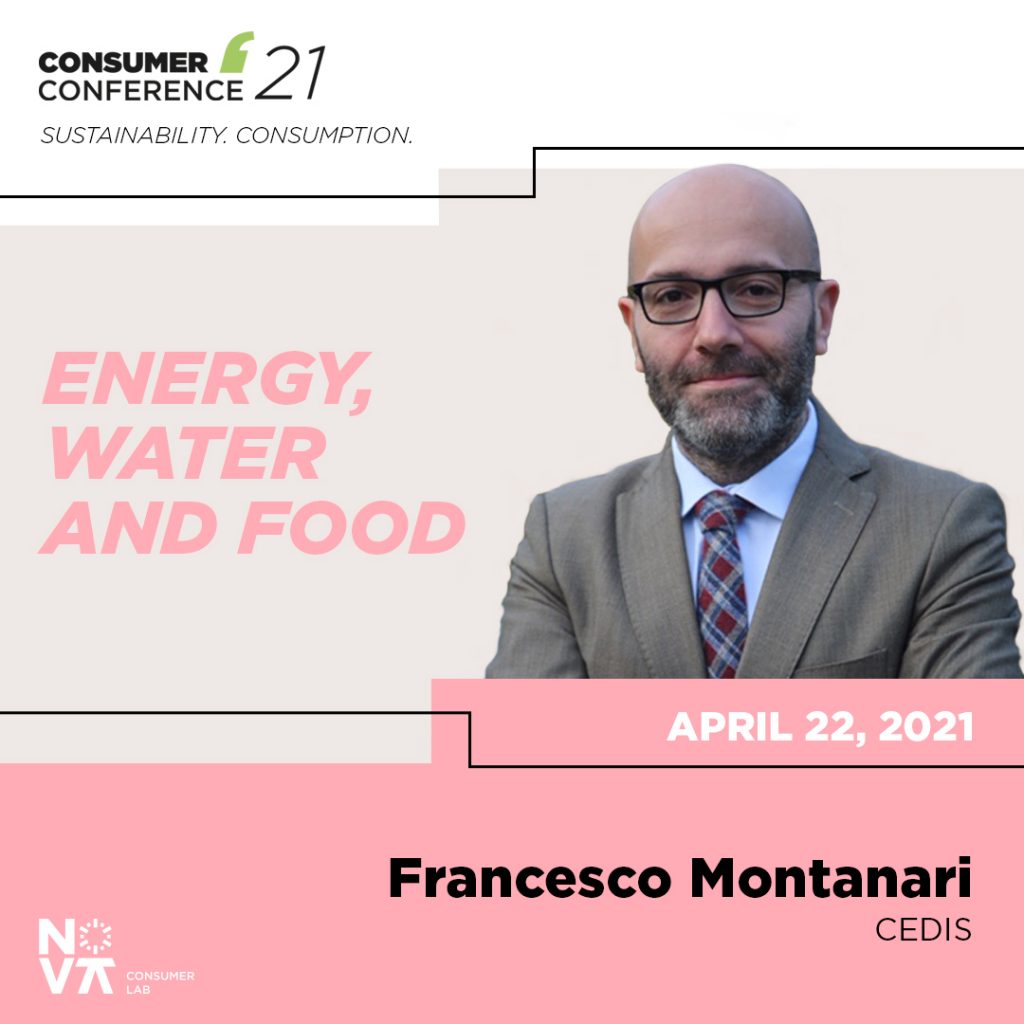
Dr Francesco Montanari is a food lawyer and Integrated Researcher at CEDIS – Research and Development Centre on Law and Society of the Law Faculty of the Universidade Nova of Lisbon (https://cedis.fd.unl.pt/en/). He holds a Ph.D. in EU law (2009) and MSc in Food Consumption Sciences (2021). Currently, his main areas of interest and research revolve around food innovation (including novel foods, insects, dairy and meat substitutes), food labelling, nutrition and healthy diets, animal welfare, official controls, and international trade in agri-food products. Since 2013 he lectures food law in training courses organised by the European Commission for the staff of national competent authorities. He is author of several international publications on EU food law, including numerous studies for the European Commission and the European Parliament.
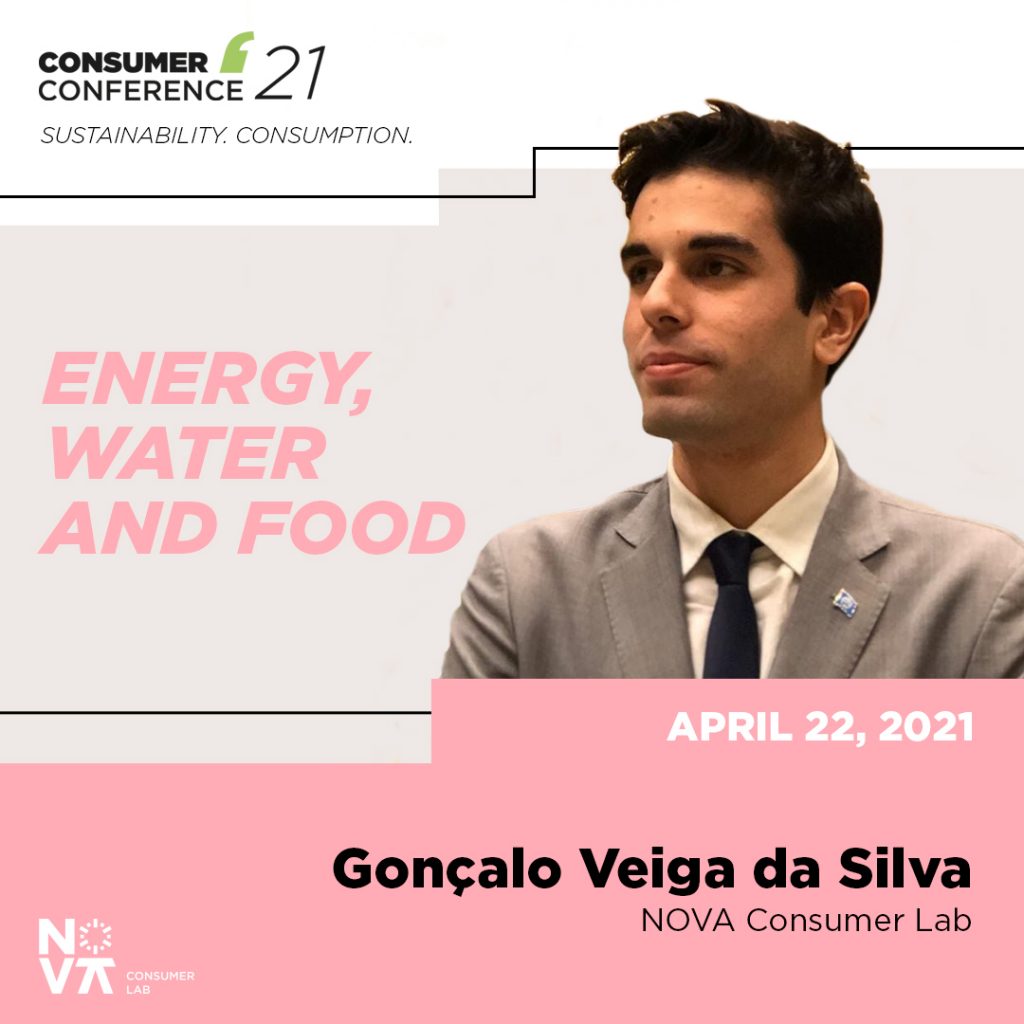
Gonçalo graduated in Law from Nova School of Law (Portugal) in 2019 with a final average of 18 (0-20 scale) and is currently taking a Master degree in Public Administration, Economics & Governance at Leiden University (The Netherlands).
He is a researcher at Nova Consumer Lab, where he has also previously worked as a Legal Expert in the legal assistance line of the (Portuguese) Directorate-General for Consumer Affairs. Gonçalo is currently researching on the intersections between consumer law and the circular economy. More specifically, his research focuses on the pathway towards a circular economy model through “servitization” and the new levels of consumers´ protection in the face of such a structural transformation. Gonçalo is part of the Executive and Scientific Committee of the Consumer Conference, organized by Nova Consumer Lab.
In the past, Gonçalo was an intern with the Mission of Portugal to the United Nations (in New York), the Representation of the European Commission in Portugal and a summer intern of the law firms PLMJ and Campos Ferreira, Sá Carneiro & Associados.
He was a member of the Pedagogic Council of Nova School of Law between 2017 and 2019. Throughout his life, he has sought to maintain an active political and civic participation, which included the engagement with local associations and projects, students`unions and political organizations.
Gonçalo has also attended several courses, including a summer school in Frankfurt and Mannheim on Banking and Finance, a course on Introduction to Economic Theories and on the Law of the External Action of the European Union. He was a co-author of “Casos Práticos de Direito do Consumo Resolvidos” (Consumer Law Cases) (Almedina, 2019).
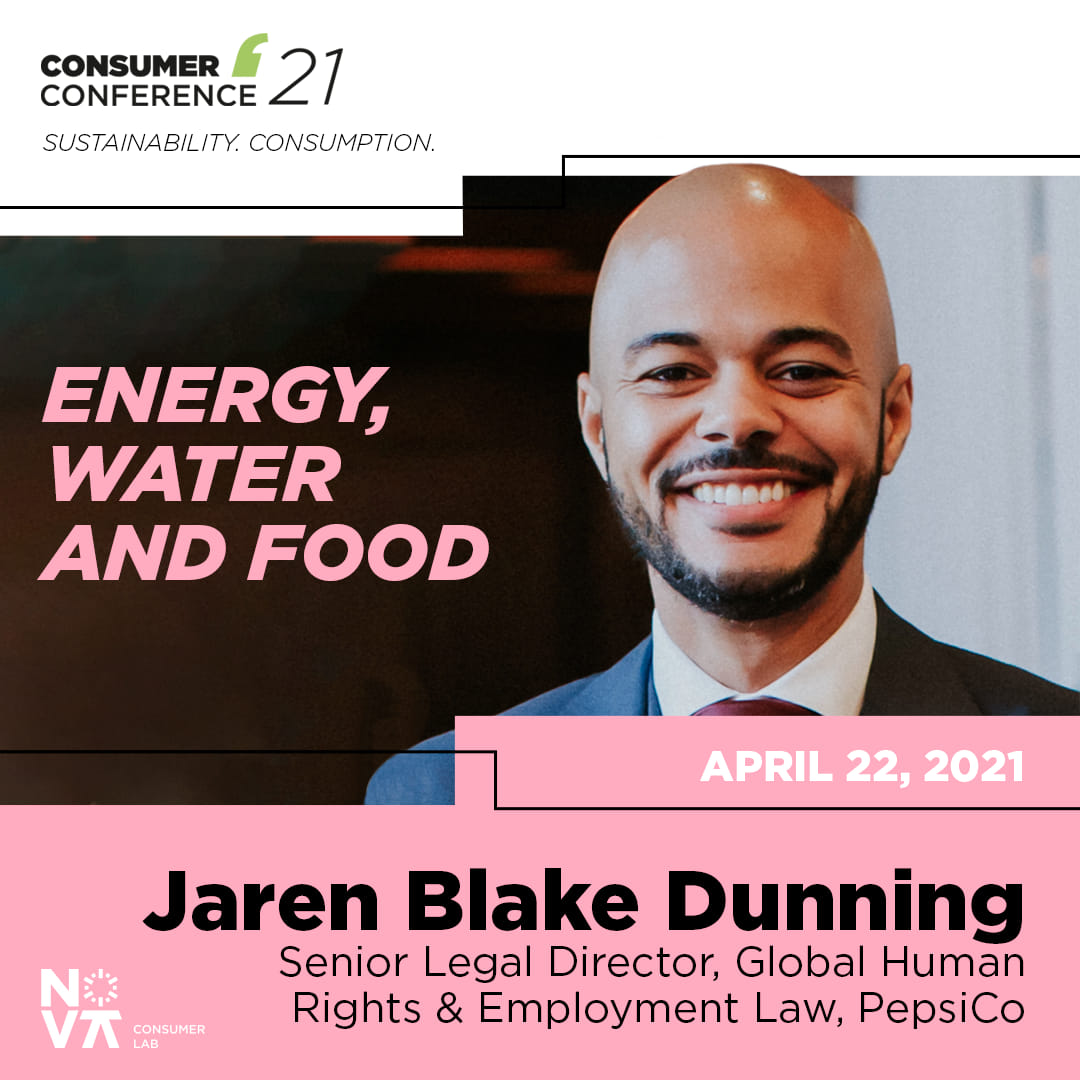
Jaren serves as Senior Counsel, Global Human Rights & Employment Law at PepsiCo. In this role, he advises the business on human rights issues, helps define the company’s global human rights strategy, and leads the execution of PepsiCo’s human rights program. Prior to this role, he worked in PepsiCo’s Sustainability Office, where he played a key role in developing PepsiCo’s corporate sustainability strategy and Performance with Purpose 2025 goals. Jaren joined PepsiCo in 2014 as a member of its Global Public Policy and Government Affairs department, where he focused on policy development and stakeholder engagement. Before joining PepsiCo, Jaren served two short stints with the United Nations as a legal intern,
managing projects at the United Nations Office of Drugs and Crime (UNODC) and the United Nations Interregional Crime and Justice Research Institute (UNICRI). He also completed a graduate fellowship at the J.W. Fanning Institute for Leadership, where he focused on public policy and community development efforts. Jaren graduated from Emory University with B.A. in English and Italian Studies. He also holds a J.D. and M.P.A. from the University of Georgia.
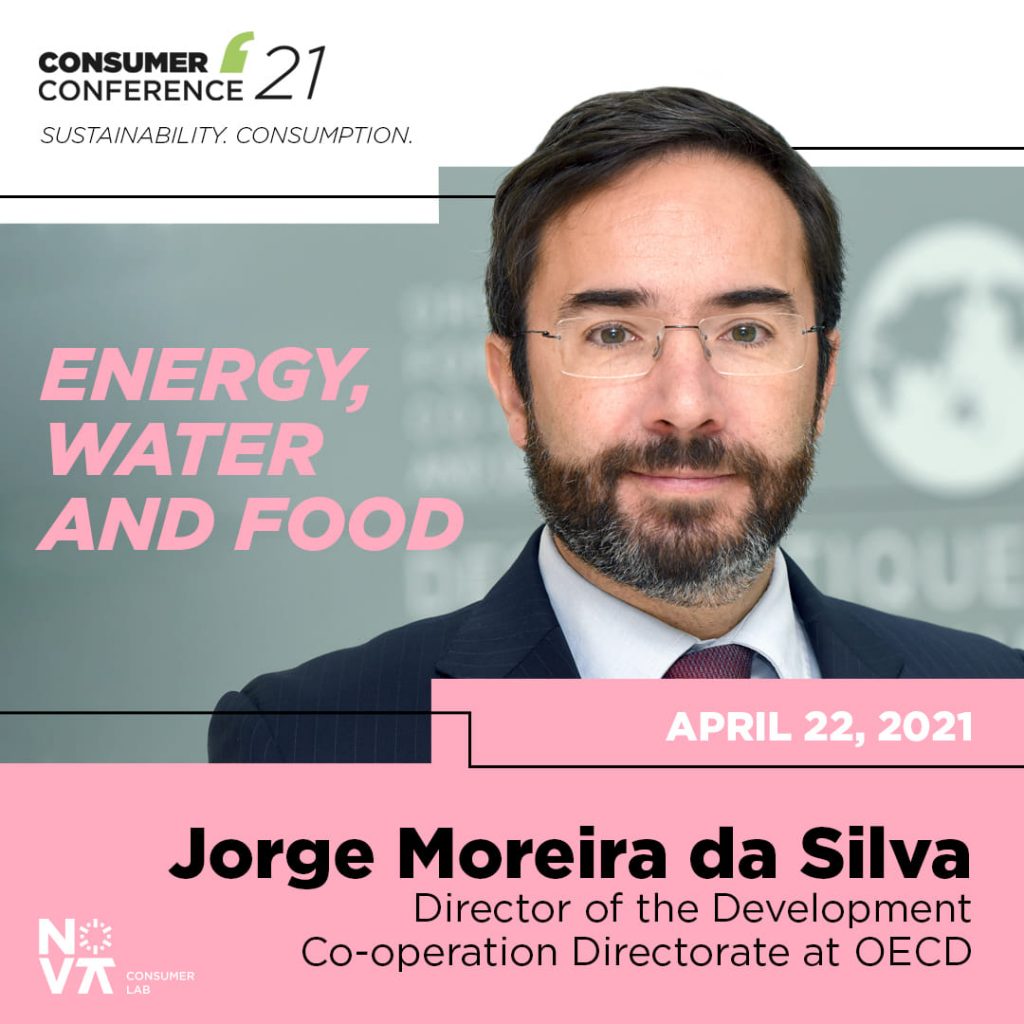
Mr. Jorge Moreira da Silva is, since 1st November 2016, the Director of the Development Cooperation Directorate (DCD) at OECD. From 2013 to 2015, he was Portugal’s Minister of Environment, Energy and Spatial Planning. Prior to this Ministerial position, Mr. Moreira da Silva served as Senior Environmental Financial Advisor at UNDP’s Bureau for Development Policy (2009-2012); Senior Advisor to the President of Portugal (2006-2009); Secretary of State for Science and Higher Education and Secretary of State for Environment and Spatial Planning (2003-2005). He also served as First Vice-President of the Executive Board of Partido Social Democrata, PSD (2010- 2016); Member of the Portuguese Parliament (1995-99; 2005-2006; 2015-16); and Member of the European Parliament (1999-2003). As Member of the European Parliament, he was the Standing Draftsman on climate change and he authored the Report and the political agreement on the EU Emissions Trading Directive in 2003. Mr. Moreira da Silva graduated from the University of Porto with a degree in Electrical and Computer Engineering and holds a postgraduate degree in Senior Management from the AESE-IESE Business School, Navarra University, Spain. He has served as Visiting Full Professor at the Lisbon University and Founder and Chairman of the Lisbon-based think-tank Platform for a Sustainable Growth.
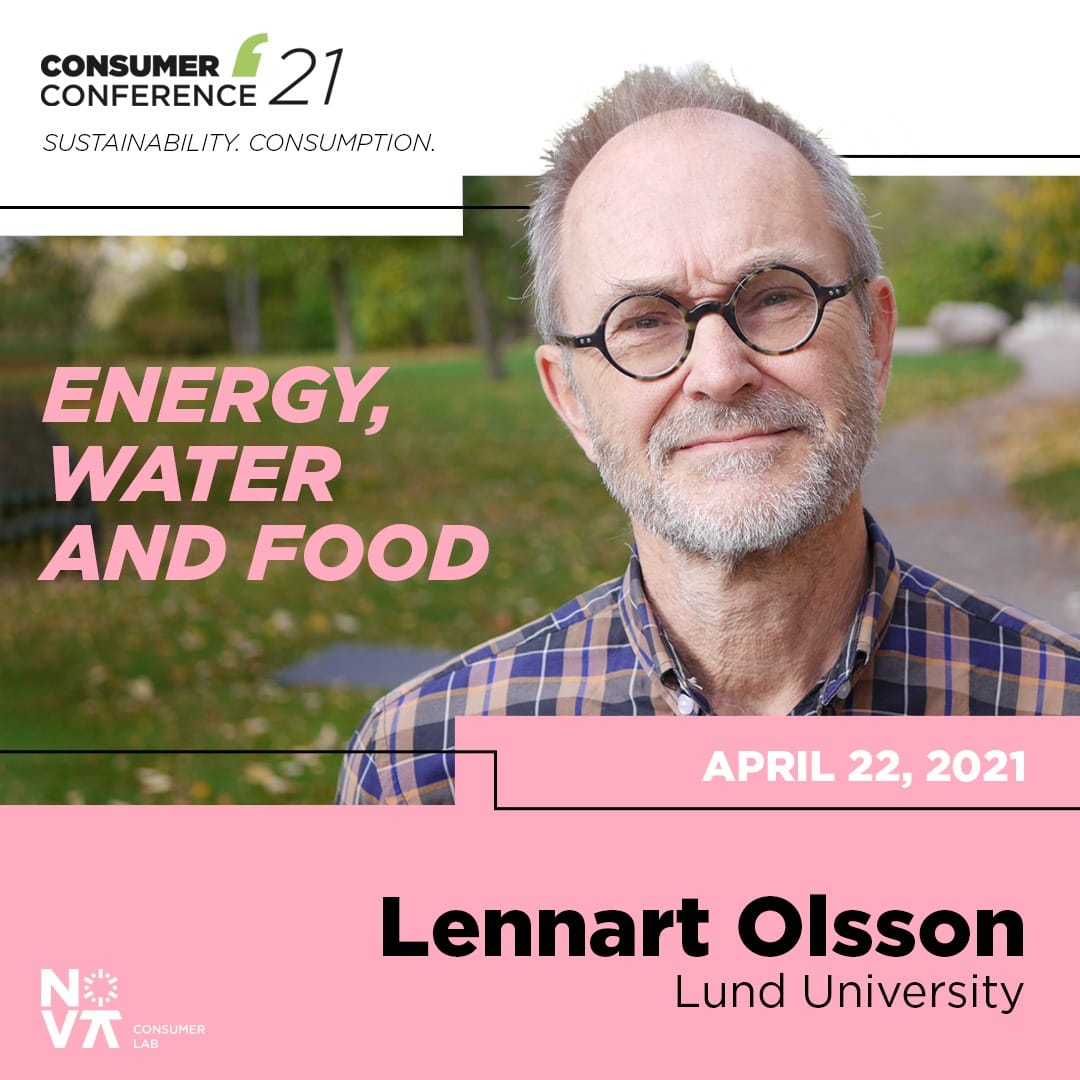
Lennart Olsson is Professor of Geography at Lund University and founding director of LUCSUS (Lund University Centre for Sustainability Studies, www.lucsus.lu.se) 2000-17. He was also leading the Linnaeus Centre LUCID (Lund University Centre of Excellence for Integration of Social and Natural Dimensions of Sustainability) 2008-18. His research fields include human-nature interactions in the context of agriculture, land degradation, climate change and food security in Africa and globally, and he has a strong interest in theoretical approaches to interdisciplinarity. A current research focus is on the transition from annual monocultures to perennial polycultures in agriculture. He is currently associate editor of the journals: Ecology and Society, and the new journal Global Sustainability. He has had research positions in Australia, USA and Hong Kong and participated in several international assignments including the IPCC and UNEP-GEO assessments. He was Coordinating Lead Author for the chapter on livelihoods and poverty in IPCC’s 5th Assessment Report 2011-14, and for the chapter on Land Degradation in the IPCC special Report on Climate Change and Land (SRCCL), 2017-19.
Link to his publications: https://scholar.google.se/citations?user=LfQd2nQAAAAJ&hl=en&oi=ao
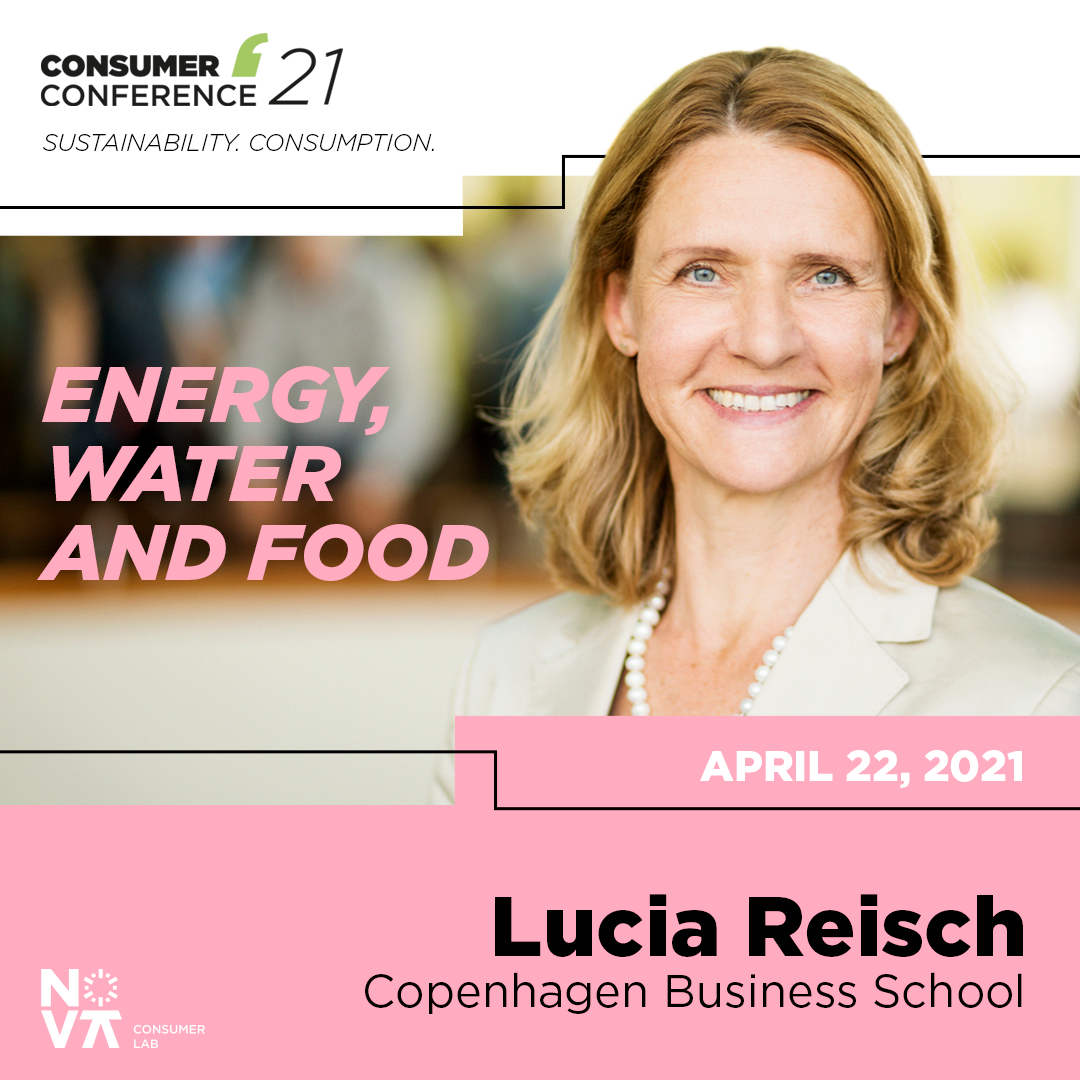
Lucia A. Reisch is a behavioural economist and full professor of intercultural consumer research and behavioural public policy with a specialization on sustainable consumption and production at Copenhagen Business School in Denmark. She is one of Europe’s leading academic experts in “nudging”, particularly in the field of sustainable consumption and production, and has published widely cited papers on the topic. Her academic imprint is reflected by the more than 400 publications she has (co-)authored, including more than 100 peer review articles, as well as by the numerous large-scale European and national research projects she has led, all centering around behaviour change towards sustainable consumption and production.
At Copenhagen Business School, Lucia has founded the interdisciplinary research lab Consumer and Behavioural Insights Group (CBIG), with researchers from economics, environmental psychology, consumer behaviour and policy research, marketing, and political science. Lucia works closely and has published major works with the Program on Behavioral Economics and Public Policy at Harvard Law School (Cass R. Sunstein). Her academic achievement has been rewarded with being elected as one of the lifelong members of the German National Academy of Science and Engineering.
Lucia has been founding chair of the Advisory Council for Consumer Affairs of the German Federal Ministry of Justice and Consumer Protection (2014-2018). She has also been a member of the German Bioeconomy Council, the German Council for Sustainable Development (2010-2019) and has been a regular member of high-level scientific committees consulting the German Chancellor on sustainability issues. She consults international organizations (EU, OECD, UNEP, the Worldbank) and governments worldwide (Mexico, South Africa) on making use of behavioural insights to promote more sustainable lifestyles.
As of September 2021, Lucia will move to Cambridge University (UK), El-Erian Professorship in Behavioural Economics and Policy.
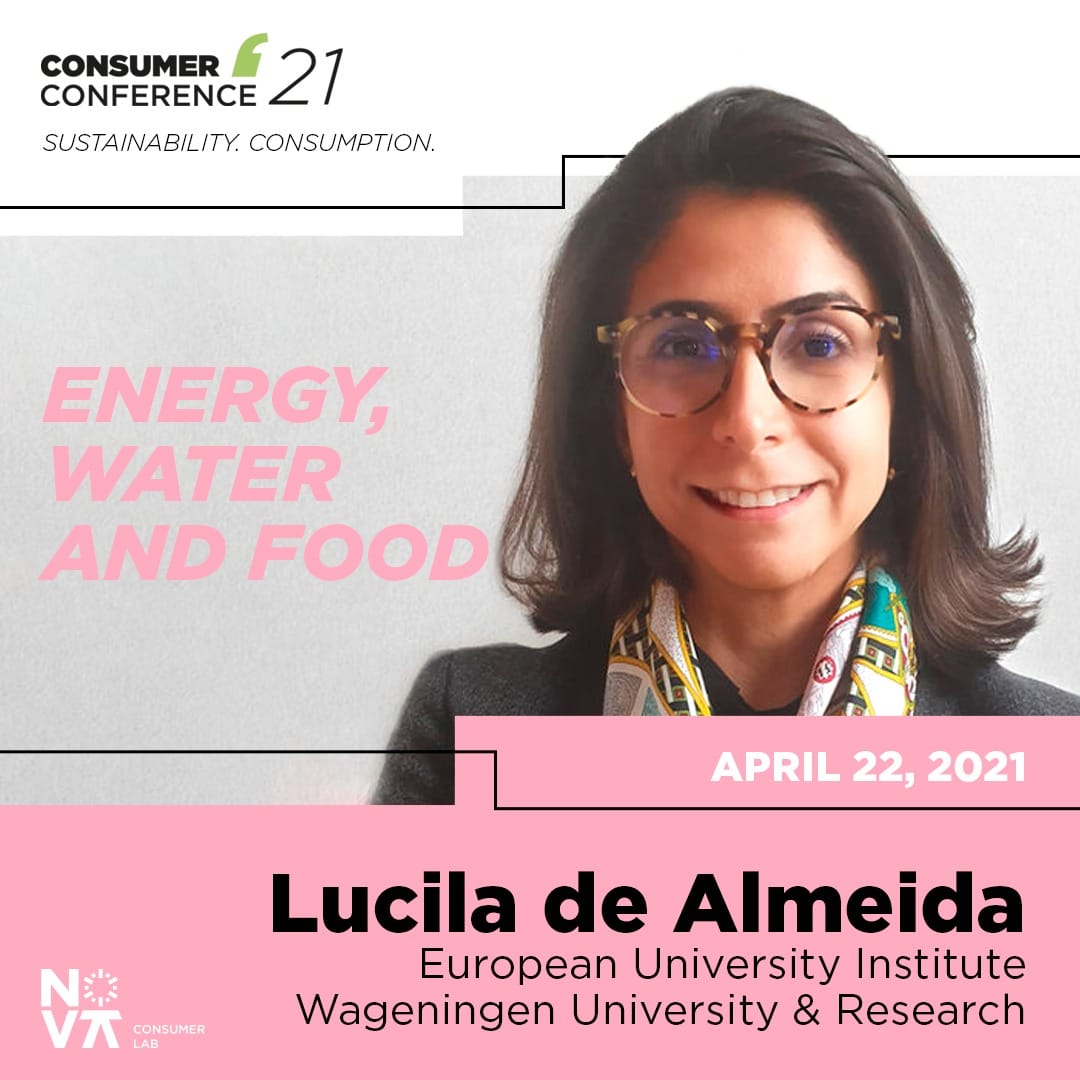
Assistant Professor in Law and Governance at the Wageningen University & Research (tenure-track), Part-time Assistant Professor at European University Institute, Robert Schuman Center for Advanced Studies, Florence School of Regulation, and co-leader of the Global Observatory on P2P energy hosted by International Energy Agency.
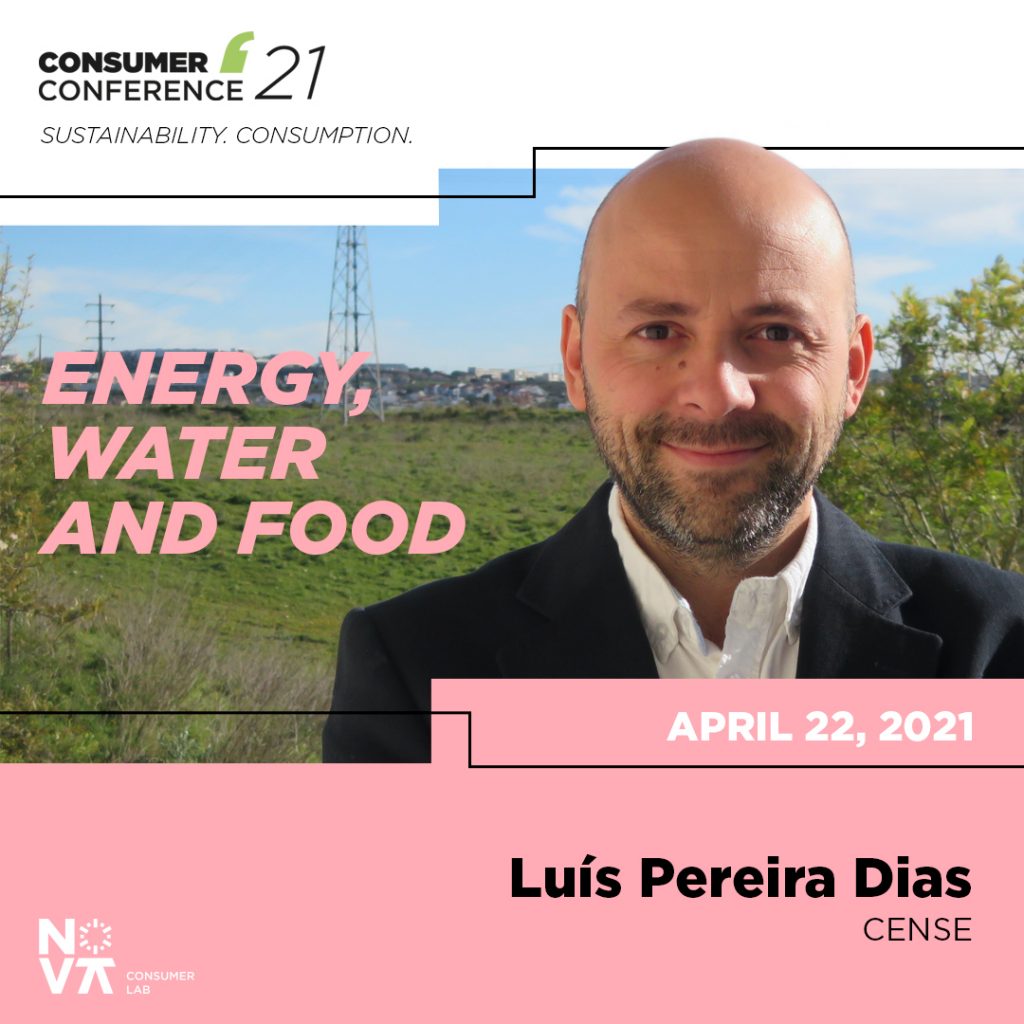
Luís Pereira Dias is currently a PhD candidate at the Global Studies Doctoral Program from NOVA University Lisbon on the research topic: City transitions to a sustainable and self-sufficient future: Water-energy-food nexus. He has contributed to energy and climate related research at CENSE – Center for Environmental and Sustainability Research from NOVA School of Science and Technology. He has collaborated in various science-based policy making projects and developed work on energy systems integrated assessment modelling, climate mitigation solutions, low carbon/carbon neutral futures, technological, economic and environmental impacts assessment scenarios, resource efficient and sustainable cities.
He has an MSc in Environmental Engineering on Integrated Analysis of Climate Change and Air Quality Policies with TIMES_PT model and a BSc. in Environmental Engineering, both from NOVA University Lisbon.
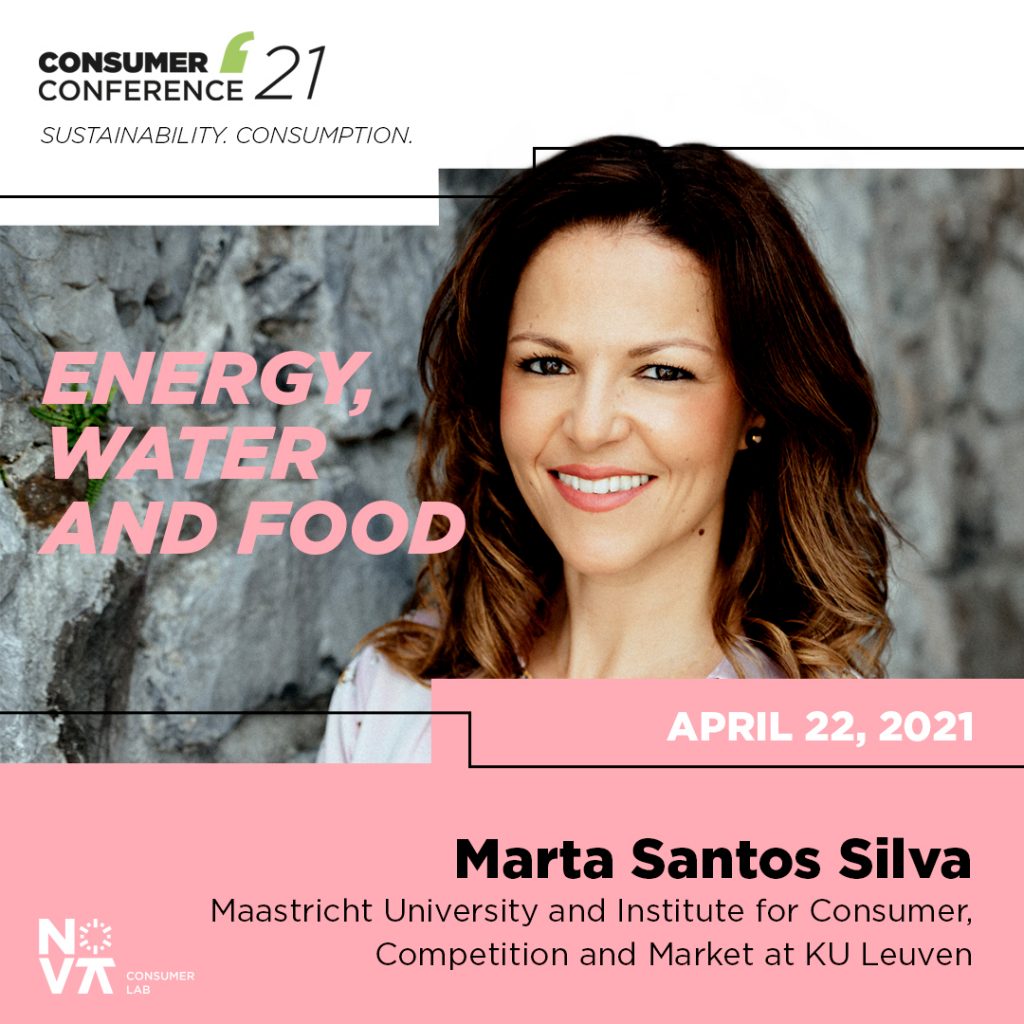
Marta Santos Silva is Lecturer at the Private Law department of the Faculty of Law at Maastricht University and affiliated senior researcher at the Institute for Consumer, Competition and Market at KU Leuven. Her research interests include law and policy for sustainability (particularly green and health nudges) and consumer protection in the digital and data economies. She was selected for the Academy of Change, a capacity building programme on sustainable behaviours designed for future leaders working on climate change and sustainability. She is also currently in the process of graduating an executive training on Behavioural Economics and Nudging at the University of Chicago Booth School of Business. Marta has been appointed member of the Expert Group on Liability and New Technologies (Product liability formation) at the European Commission and is member of the European Law Institute’s Environmental Law and Digital Law Special Interest Groups. She has 15 years of professional experience in teaching, academic management and also legal and policy consultancy: prior to her current role, she was legal advisor with a Brussels-based consultancy, working chiefly with the European institutions and agencies, particularly the European Commission, the European Parliament and CHAFEA.
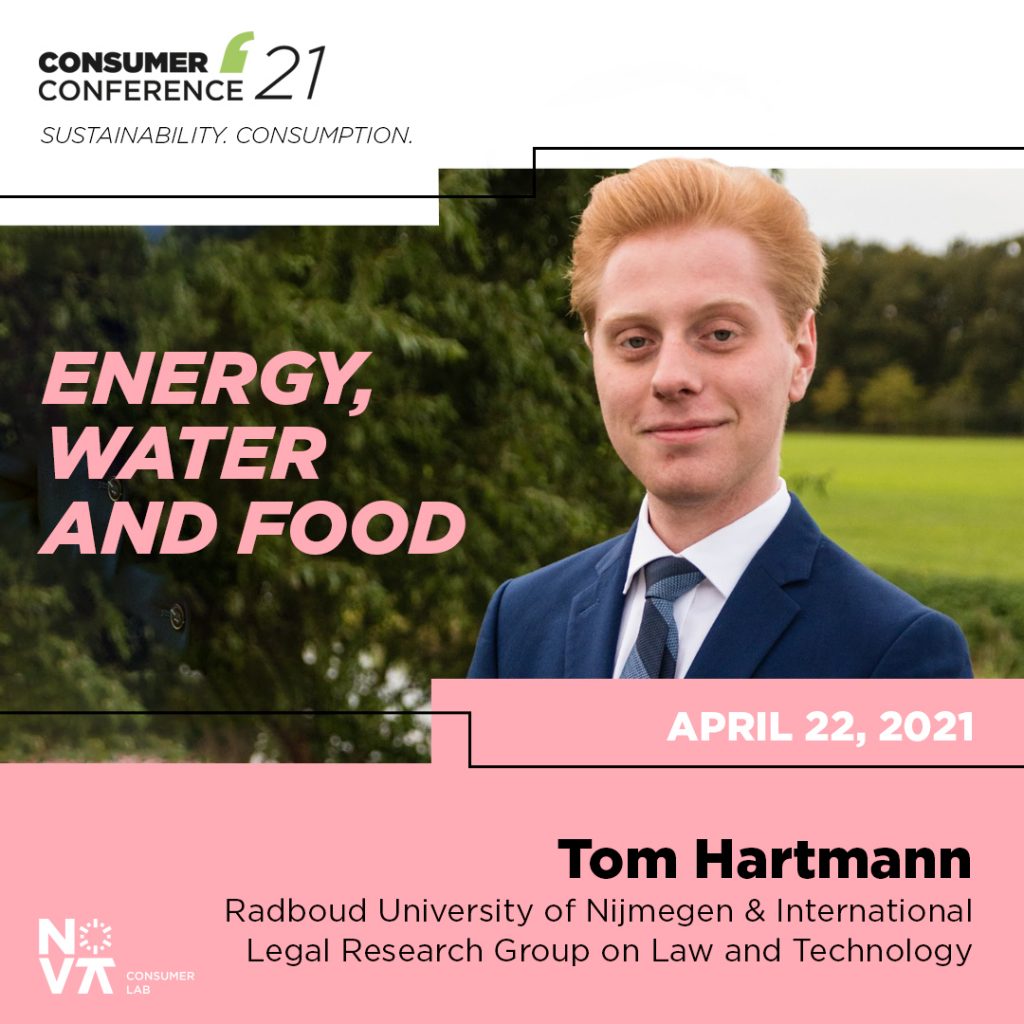
Tom Hartmann is a student specialised in European Law at the Radboud University of Nijmegen (the Netherlands), and has been a former President of the European Law Students’ Association for the city of Nijmegen (2018-2019) and the Netherlands (2019-2020). He is a current National Researcher for the Netherlands at the International Legal Research Group on Law and Technology and has organised several digital conferences on the derogation of Human Rights during the COVID-19 pandemic with the Council of Europe and the European Commission. He was also co-host of the 2019 BENELUX conference on the Law of Artificial Intelligence held in Brussels, which saw a variety of speakers from all over Europe attend and present legal innovations and ideas on the subject.
He is the author and presenter of the paper for this conference, titled “The Dutch versus the EU: the consumer-induced legal shifts of sustainable and resource-oriented initiatives in the Netherlands.”
The future of private law is green
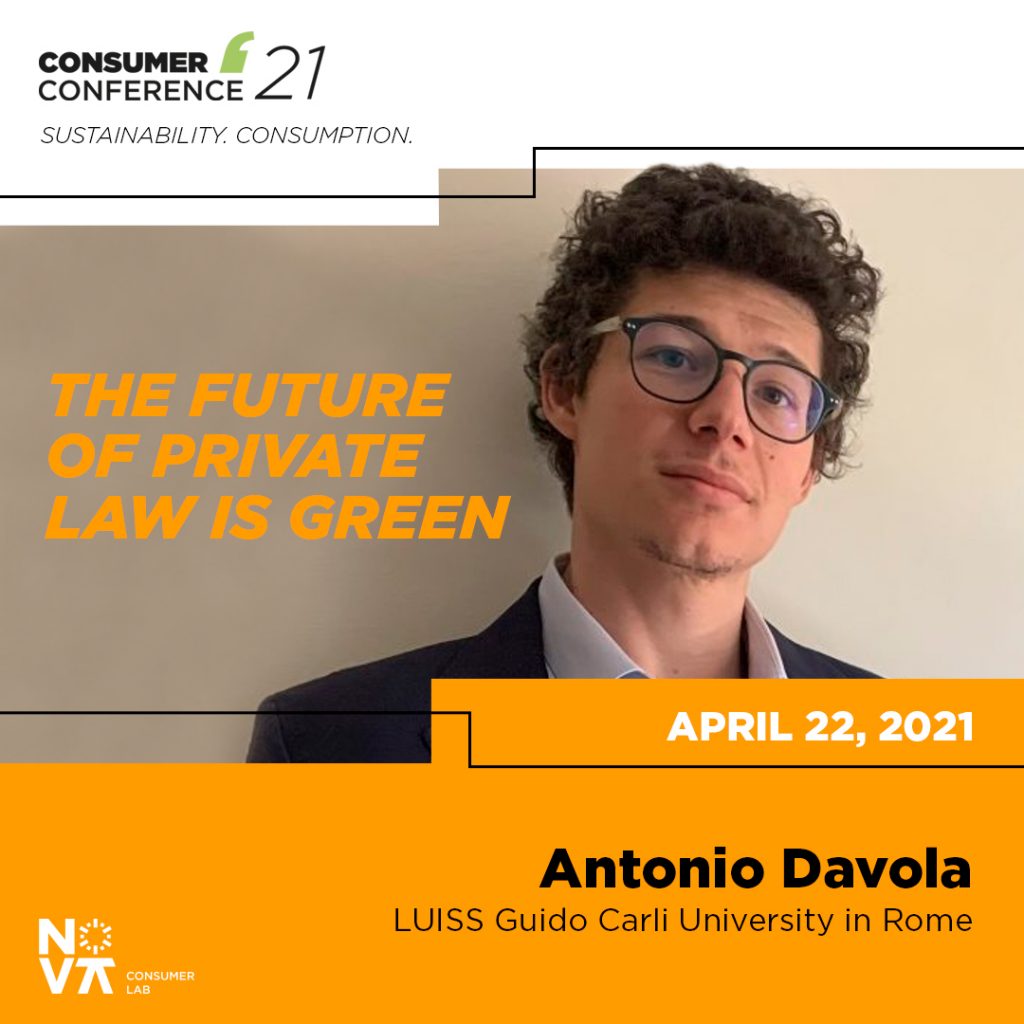
Dr. Antonio Davola, LLB with honors (University of Pisa, 2015), LLM (Yale Law School, 2018) PhD with honors in “Law and Technology” (Sant’ Anna School of Advanced studies, Pisa, 2019) is Adjunct Professor and Post-Doctoral Research Fellow at LUISS Guido Carli University in Rome, and Marie Sklodowska Curie Individual Fellow at the University of Amsterdam. His main areas of interest involve financial markets regulation, competition law, consumer protection and the governance of new technologies in the European framework.
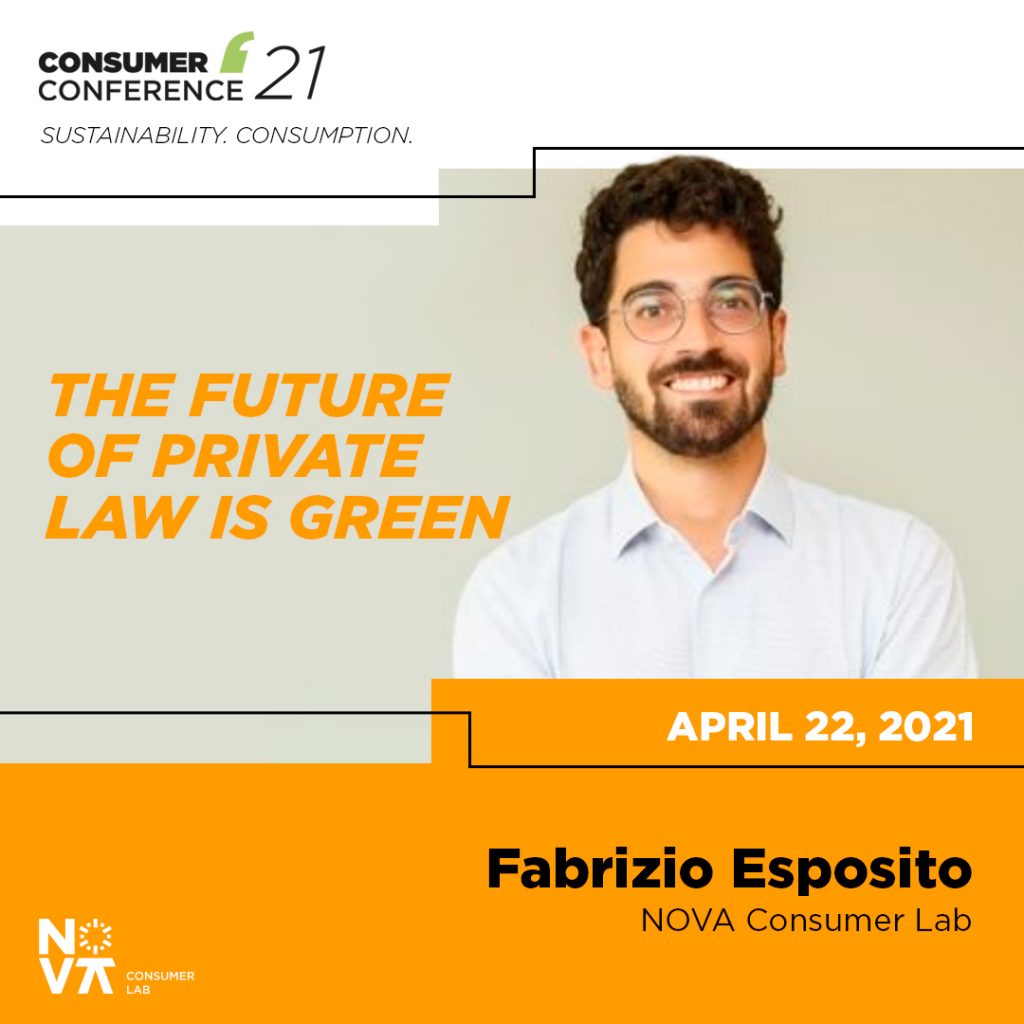
Fabrizio Esposito is Assistant Professor in Private Law at the NOVA School of Law, a member of the NOVA Consumer Lab, and coordinator of the MetaLawEcon network. Fabrizio graduated in law at Bocconi University in 2011. After working for two years in civil and commercial litigation, he was admitted as a researcher at the European University Institute, where he obtained an LLM in Comparative, European and International Law (2015) and his PhD in 2018 after defending his dissertation, which opens new frontiers in research about law and economics.
Before joining the NOVA School of Law, Fabrizio was a Postdoctoral Fellow at the Edmond J. Safra Center for Ethics at Tel Aviv University and Postdoctoral Fellow at the Universitè Catholique de Louvain, where he joined the PROSECO Project. He held visiting positions at the University of Helsinki and Pisa, and was a Global Visiting Fellow at UCLouvain.
His research focuses on the relationship between private law, economic law, EU law, economics and legal theory with a particular focus on consumer and antitrust law and digital markets. He is currently working on price personalization, the use of theories of harm in consumer law, and will publish a monograph showing how and why legal and economic research shall be united in diversity.
Fabrizio publishes regularly in international journals such as: the European Review of Contract Law, the Journal of Consumer Policy, the European Journal of Risk Regulation, the European Competition Journal. He has co-edited two volumes: Research Methods in Consumer Law (with H-W Micklitz and A-L Sibony; EE 2018) and Economics in Legal Reasoning (with P Cserne; Palgrave 2020). He was in charge of the legal theory section of the European Journal of Legal Studies and writes twice per year for the European Review of Contract Law about recent developments in EU contract law.
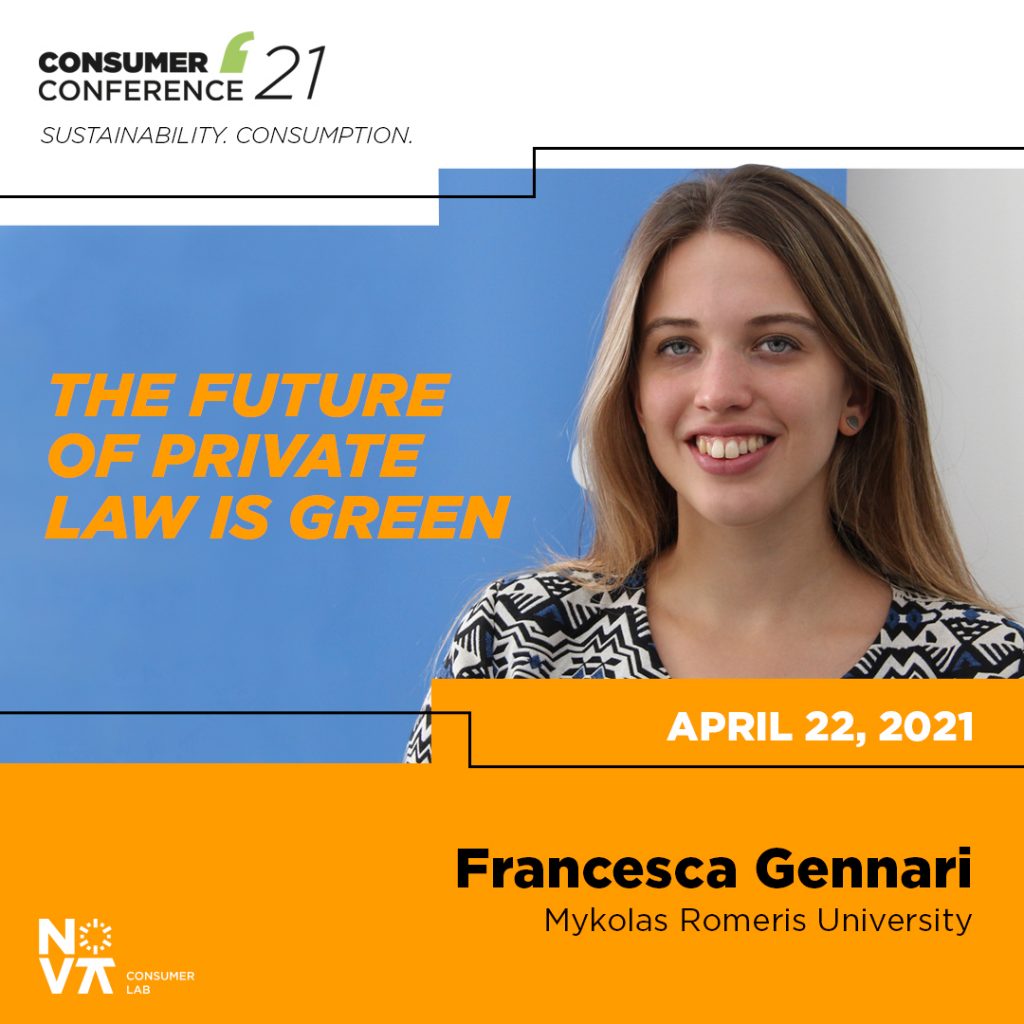
Francesca Gennari is a doctoral researcher in the Law, Science and Technology Joint Doctorate – Rights of Internet of Everything, funded by Marie Skłodowska-Curie Actions.
Francesca Gennari completed her Master Degree in European and Transnational Law at the University of Trento with the maximum of grades in 2016. In the framework of the Honours Program of the University of Trento, the Collegio di Merito B. Clesio, she was in Paris as a double degree student during her third University year at Université Sorbonne Paris Nord (former Université Paris 13) and for a month in her final year to carry out research for her master thesis. She was admitted to the College of Europe, Bruges Campus, year 2016-2017, with a partial scholarship of the Italian Ministry of Foreign Affairs. Her main interests were International Private Law and Regulatory Aspects of the Digital Single Market.
She was a legal trainee at the office of the European Ombudsman in Strasbourg for one year (2017-2018). Thanks to this traineeship, she developed her interests in data protection, consumer law and new technologies through research and practical tasks.
Her doctoral research focuses on the Internet of Things (Law): Legal liability of IoE devices in the home.
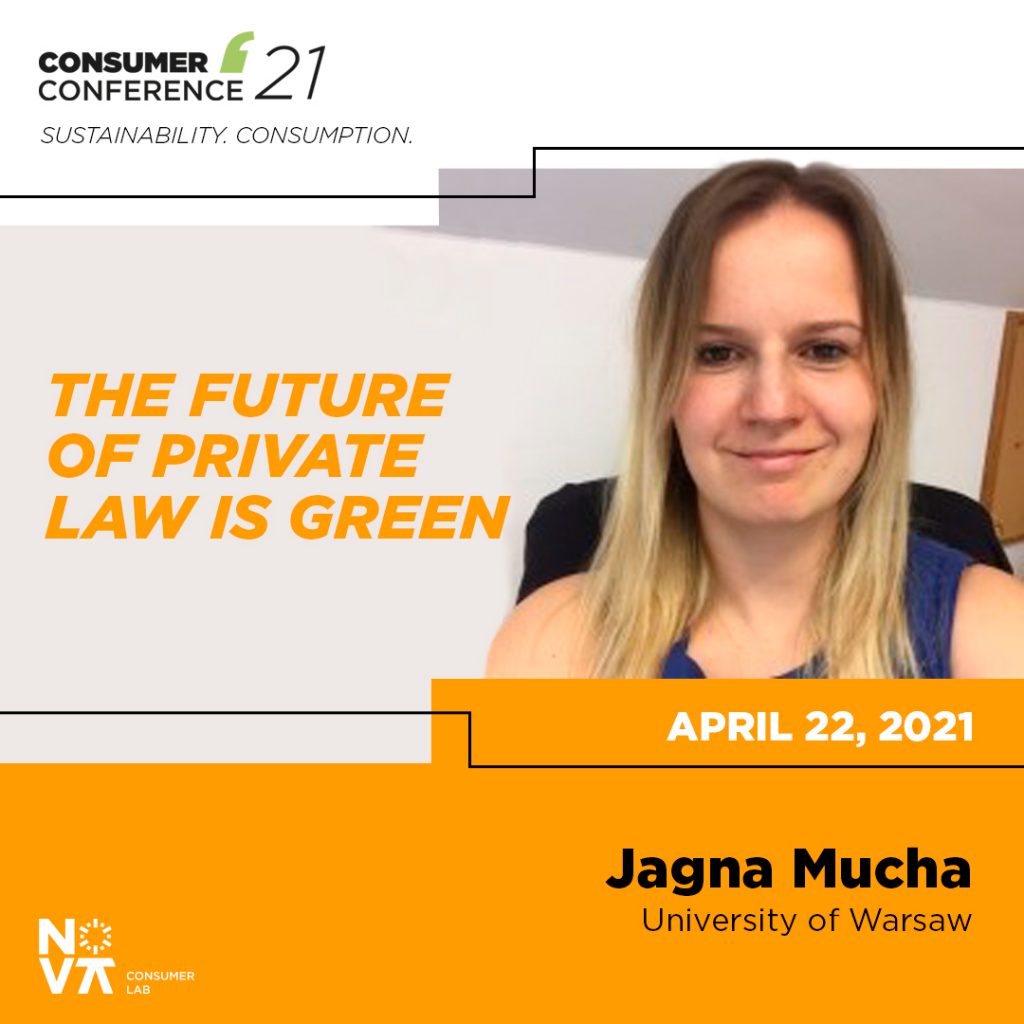
Dr Jagna Mucha works as an assistant professor at the Faculty of Law and Administration of the University of Warsaw, Poland. Jagna’s professional interests revolve around different methods of law enforcement and the problem of access to justice in the European Union. She conducted several studies in this field, among others at the University of Oxford and at the Ludwig-Maximilians University in Munich. Currently she runs a research project entitled “Consumer collective redress in the group proceedings in the Polish legal system in the light of the European Union law standards- achievements and challenges”, funded by the Polish National Science Centre (decision no. 2018/28/C/HS5/00083). She is a grantholder of the scholarship funded by the Foundation for Polish Science (FNP).
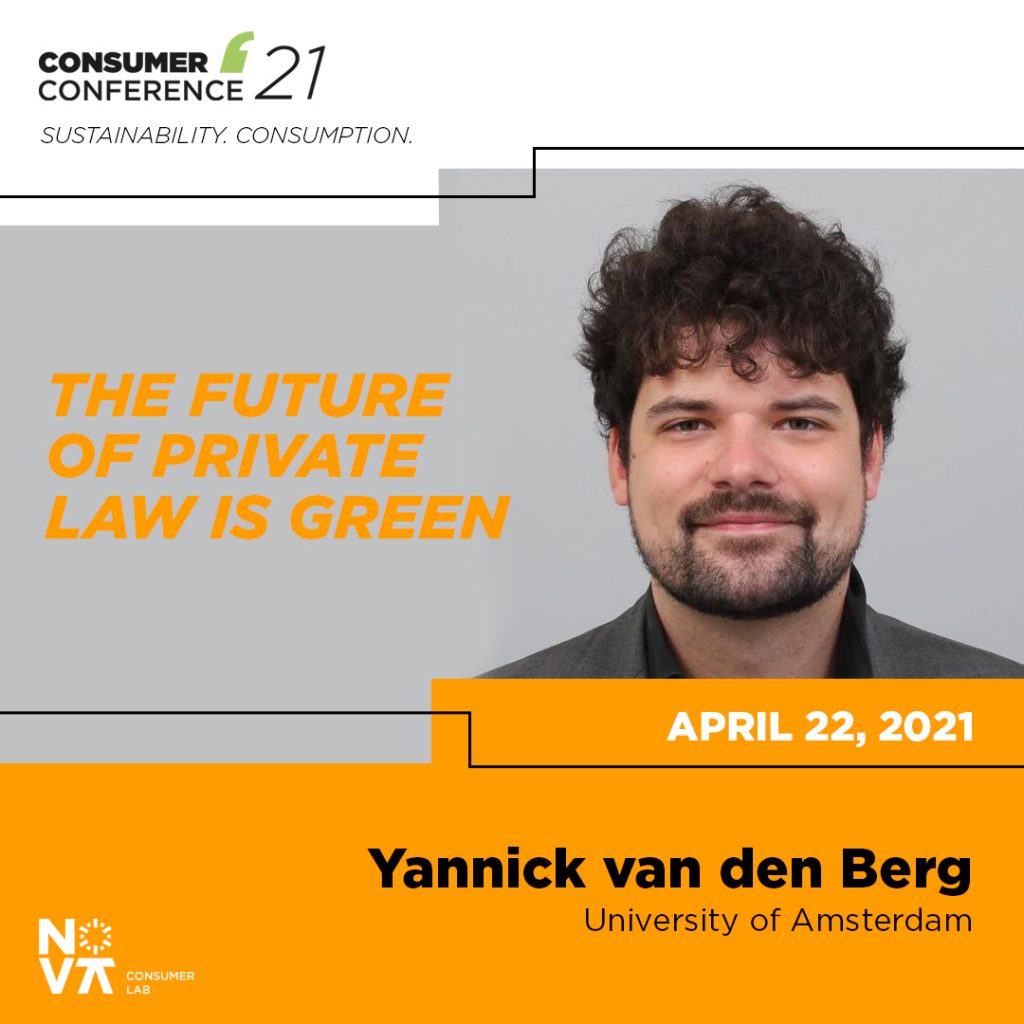
Yannick van den Berg is a PhD candidate at the Amsterdam Centre for European Law and Governance and the Amsterdam Centre for Transformative Private law. In his PhD he takes a practice theoretical approach to (European) consumer law, with a particular interest in sustainable consumption. More specifically he is interested in how taking a practice approach to the law may reduce our engagement in certain resource intensive practices. Currently his research focusses on the role of loyalty programmes in entrenching unsustainable consumption.

